Shows
 Supreme Betrayal: How the Supreme Court and Constitutional Law Have Failed AmericaMike's Version of Constitutional Theory (or Anti-Theory)Mike gets a chance to lay out his approach. We begin with a longish discussion of the Emancipation Proclamation: Was it merely a “bill of lading”/military measure (Mark) or an extraconstitutional action justified because it was right (Mike)—or both? Mike then develops his approach by distinguishing between simple justice and legal justice and argues that legal justice interferes with the accomplishment of simple justice by trying to shut down disagreements about simple justice requires with an authoritarian “Get over it!” His alternative is the development of norms of reciprocity, mutual respect, compromise, and more to guide the temporary resolution...2025-06-271h 07
Supreme Betrayal: How the Supreme Court and Constitutional Law Have Failed AmericaMike's Version of Constitutional Theory (or Anti-Theory)Mike gets a chance to lay out his approach. We begin with a longish discussion of the Emancipation Proclamation: Was it merely a “bill of lading”/military measure (Mark) or an extraconstitutional action justified because it was right (Mike)—or both? Mike then develops his approach by distinguishing between simple justice and legal justice and argues that legal justice interferes with the accomplishment of simple justice by trying to shut down disagreements about simple justice requires with an authoritarian “Get over it!” His alternative is the development of norms of reciprocity, mutual respect, compromise, and more to guide the temporary resolution...2025-06-271h 07 Supreme Betrayal: How the Supreme Court and Constitutional Law Have Failed AmericaTushnet's Approach Concluded At Last!The final (!) episode laying out Tushnet’s “craft” account of what judicial review done well looks like. We discuss Tushnet’s argument that good judges use legal reasoning, not direct appeals to justice, to explain and justify what they do. His shorthand is that, just as a well-designed legislative process gives everyone a fair shot at getting their policies adopted and so produces outcomes that those who lose out should and typically do accept, so a well-performed judicial function gives everyone a fair shot at making reasoned arguments that judges evaluate on the merits. And that means, for him, that good jud...2025-06-061h 15
Supreme Betrayal: How the Supreme Court and Constitutional Law Have Failed AmericaTushnet's Approach Concluded At Last!The final (!) episode laying out Tushnet’s “craft” account of what judicial review done well looks like. We discuss Tushnet’s argument that good judges use legal reasoning, not direct appeals to justice, to explain and justify what they do. His shorthand is that, just as a well-designed legislative process gives everyone a fair shot at getting their policies adopted and so produces outcomes that those who lose out should and typically do accept, so a well-performed judicial function gives everyone a fair shot at making reasoned arguments that judges evaluate on the merits. And that means, for him, that good jud...2025-06-061h 15 Supreme Betrayal: How the Supreme Court and Constitutional Law Have Failed AmericaA Convefrsation with Aziz RanaWe have our first guest! We engage in a wide-ranging conversation with Aziz Rana, jumping off from his important book The Constitutional Bind: How Americans Came to Idolize a Document That Fails Them (which we urge you to buy and read). Rana’s book ends before the turn of this century, and our conversation both extends the ideas he develops there (particularly about the connection between the role of the US on the international scene and the US constitutional creed), and takes up his and our thinking about contemporary issues.2025-06-031h 04
Supreme Betrayal: How the Supreme Court and Constitutional Law Have Failed AmericaA Convefrsation with Aziz RanaWe have our first guest! We engage in a wide-ranging conversation with Aziz Rana, jumping off from his important book The Constitutional Bind: How Americans Came to Idolize a Document That Fails Them (which we urge you to buy and read). Rana’s book ends before the turn of this century, and our conversation both extends the ideas he develops there (particularly about the connection between the role of the US on the international scene and the US constitutional creed), and takes up his and our thinking about contemporary issues.2025-06-031h 04 Supreme Betrayal: How the Supreme Court and Constitutional Law Have Failed AmericaMore Current Events--and More Theory TooAnother discussion of current events and constitutional theory. We distinguish between “small bore” and “large bore” challenges to Trump’s agenda—the former dealing with individual injustices and the latter with more comprehensive programs like tariffs—and suggest that courts might do something about the former but are less likely to do anything about the latter. We disagree as usual about the potential political impact of interventions in small bore cases. And we wrap the episode up with a discussion of whether Trump could serve a third term through creative constitutional interpretation or a workaround—and end up with arguing over the connect...2025-04-2150 min
Supreme Betrayal: How the Supreme Court and Constitutional Law Have Failed AmericaMore Current Events--and More Theory TooAnother discussion of current events and constitutional theory. We distinguish between “small bore” and “large bore” challenges to Trump’s agenda—the former dealing with individual injustices and the latter with more comprehensive programs like tariffs—and suggest that courts might do something about the former but are less likely to do anything about the latter. We disagree as usual about the potential political impact of interventions in small bore cases. And we wrap the episode up with a discussion of whether Trump could serve a third term through creative constitutional interpretation or a workaround—and end up with arguing over the connect...2025-04-2150 min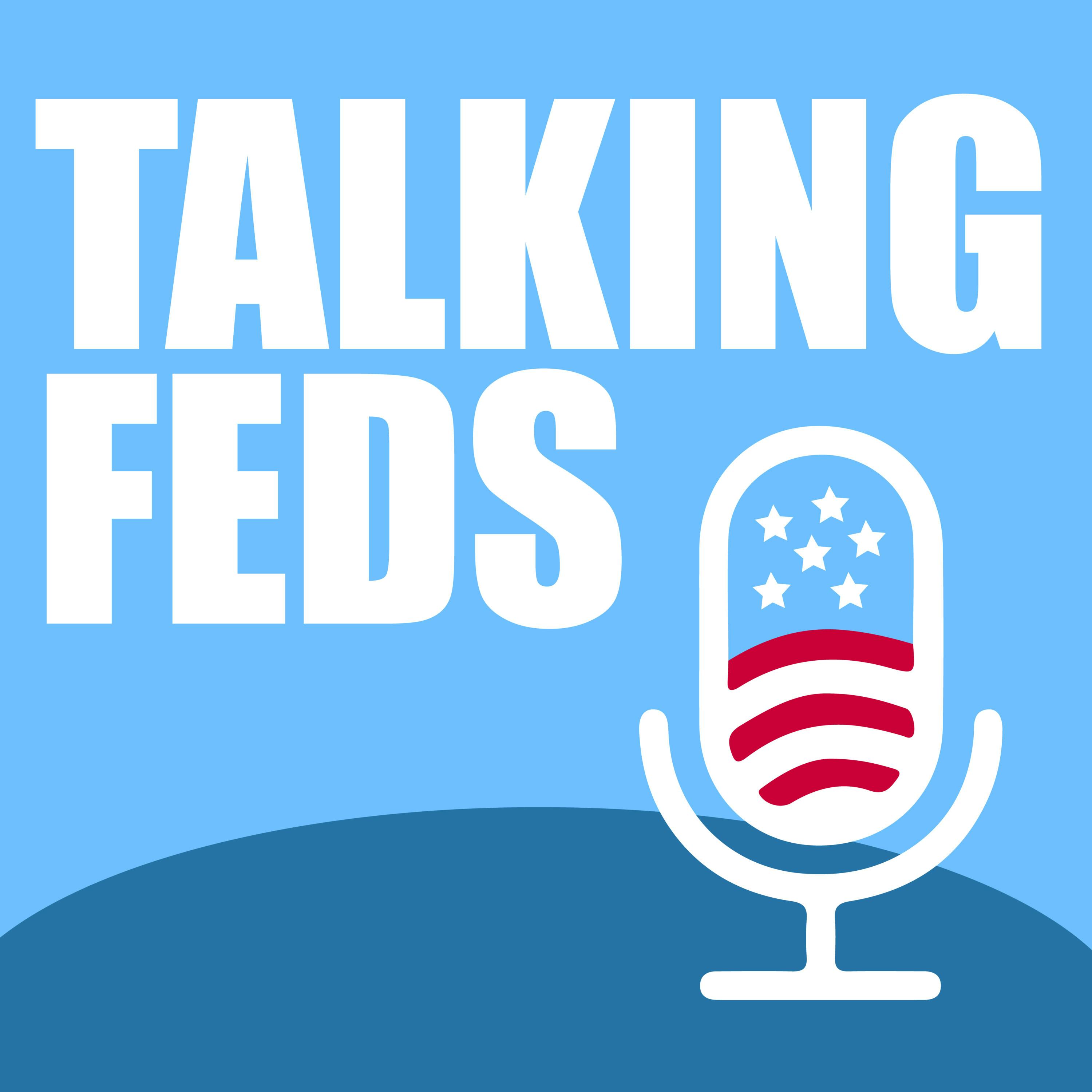 Talking FedsCan Harvard Tough it Out?
Harry talks with Mark Tushnet, the William Nelson Cromwell Professor of Law, Emeritus at Harvard Law School, and one of the country’s leading constitutional scholars. After a brief discussion about his new book, “Who Am I To Judge,” the two dive in to the law and politics of the Trump administration assault on elite universities, in particular Harvard and Columbia. Tushnet explains why he thinks that the Administrations’ broad-gauged demands are unconstitutional on several grounds, including a somewhat underdeveloped principle in the law of fit between Government objection and proposed remedy, i.e. here that the administration is stating co...2025-04-1729 min
Talking FedsCan Harvard Tough it Out?
Harry talks with Mark Tushnet, the William Nelson Cromwell Professor of Law, Emeritus at Harvard Law School, and one of the country’s leading constitutional scholars. After a brief discussion about his new book, “Who Am I To Judge,” the two dive in to the law and politics of the Trump administration assault on elite universities, in particular Harvard and Columbia. Tushnet explains why he thinks that the Administrations’ broad-gauged demands are unconstitutional on several grounds, including a somewhat underdeveloped principle in the law of fit between Government objection and proposed remedy, i.e. here that the administration is stating co...2025-04-1729 min Supreme Betrayal: How the Supreme Court and Constitutional Law Have Failed AmericaCurrent Events Again--and Some Theory TooThis current events episode uses the Alien Enemies Act case before Judge Boasberg as our vehicle for examining what constitutional theory can contribute to understanding fast-moving current events. We argue about how nervous we should be about Seidman’s arguments for constitutional disobedience in our current context and about the contributions, if any, constitutional litigation can make to alleviating—or exacerbating—what’s going on. We conclude with a description of what commentators might mean when they describe Trump’s actions as “illegal,” and discuss why such descriptions might not be as helpful as you might initially think.2025-03-3149 min
Supreme Betrayal: How the Supreme Court and Constitutional Law Have Failed AmericaCurrent Events Again--and Some Theory TooThis current events episode uses the Alien Enemies Act case before Judge Boasberg as our vehicle for examining what constitutional theory can contribute to understanding fast-moving current events. We argue about how nervous we should be about Seidman’s arguments for constitutional disobedience in our current context and about the contributions, if any, constitutional litigation can make to alleviating—or exacerbating—what’s going on. We conclude with a description of what commentators might mean when they describe Trump’s actions as “illegal,” and discuss why such descriptions might not be as helpful as you might initially think.2025-03-3149 min Supreme Betrayal: How the Supreme Court and Constitutional Law Have Failed AmericaStill More on Constitutional FoundationsWith the idea of constitutional "workarounds” as a focal point, we describe the quite large areas of agreement between us about democratic constitutions in general and about the US Constitution specifically and try to clarify where our disagreements lie. The disagreements are mostly about how the US constitutional system functions today and partly about what a good democratic constitution building upon actual US experience would look like.2025-03-251h 10
Supreme Betrayal: How the Supreme Court and Constitutional Law Have Failed AmericaStill More on Constitutional FoundationsWith the idea of constitutional "workarounds” as a focal point, we describe the quite large areas of agreement between us about democratic constitutions in general and about the US Constitution specifically and try to clarify where our disagreements lie. The disagreements are mostly about how the US constitutional system functions today and partly about what a good democratic constitution building upon actual US experience would look like.2025-03-251h 10 The JabotJudicial Philosophies Are Way Overrated with Mark TushnetKathryn Rubino chats with Harvard Law’s Prof. Mark Tushnet, exploring his new book, “Who Am I to Judge?” Tushnet critiques the Supreme Court’s originalism and questions the narrow experience of justices. A must-listen to rethink judicial norms and hear Tushnet’s engaging perspectives on ideal court nominations and even the question of favorite books! Highlights The genesis of a legal career: from political science to law school. Critique of judicial review’s evolution since the 1970s. Democrats rely on courts against the Trump administration. Background of the book “Who Am I to Judge?” Insight on Supreme Court...2025-03-2127 min
The JabotJudicial Philosophies Are Way Overrated with Mark TushnetKathryn Rubino chats with Harvard Law’s Prof. Mark Tushnet, exploring his new book, “Who Am I to Judge?” Tushnet critiques the Supreme Court’s originalism and questions the narrow experience of justices. A must-listen to rethink judicial norms and hear Tushnet’s engaging perspectives on ideal court nominations and even the question of favorite books! Highlights The genesis of a legal career: from political science to law school. Critique of judicial review’s evolution since the 1970s. Democrats rely on courts against the Trump administration. Background of the book “Who Am I to Judge?” Insight on Supreme Court...2025-03-2127 min Supreme Betrayal: How the Supreme Court and Constitutional Law Have Failed AmericaThe Foundations of the US Constitution--Seidman's ApproachThis episode lays out a different way of thinking about the US Constitution as of 2025. (How different it is from Tushnet’s is something we discuss in the episode and will continue to worry over.) Seidman begins by describing what the Constitution as written in 1789 was designed to do then—set up a government, set out some compromises between then-important political forces in a sort of peace treaty, and state some general aspirations the new government might hope to advance. He then asks whether adhering to the Constitution of 1789, particularly by treating it as in general enforceable by the courts, is n...2025-03-1148 min
Supreme Betrayal: How the Supreme Court and Constitutional Law Have Failed AmericaThe Foundations of the US Constitution--Seidman's ApproachThis episode lays out a different way of thinking about the US Constitution as of 2025. (How different it is from Tushnet’s is something we discuss in the episode and will continue to worry over.) Seidman begins by describing what the Constitution as written in 1789 was designed to do then—set up a government, set out some compromises between then-important political forces in a sort of peace treaty, and state some general aspirations the new government might hope to advance. He then asks whether adhering to the Constitution of 1789, particularly by treating it as in general enforceable by the courts, is n...2025-03-1148 min ABA Journal Podcasts - Legal Talk NetworkThis Harvard Law prof thinks constitutional theory is a terrible way to pick a judgeWhat if we are asking the wrong questions when selecting American judges? Mark Tushnet thinks our current criteria might be off.“We should look for judges who are likely to display good judgment in their rulings … and we shouldn’t care whether they have a good theory about how to interpret the Constitution as a whole—and maybe we should worry a bit if they think they have such a theory,” the Harvard Law professor writes in his new book, Who Am I to Judge? Judicial Craft Versus Constitutional Theory.In looking at what qualities were shared...2025-03-0540 min
ABA Journal Podcasts - Legal Talk NetworkThis Harvard Law prof thinks constitutional theory is a terrible way to pick a judgeWhat if we are asking the wrong questions when selecting American judges? Mark Tushnet thinks our current criteria might be off.“We should look for judges who are likely to display good judgment in their rulings … and we shouldn’t care whether they have a good theory about how to interpret the Constitution as a whole—and maybe we should worry a bit if they think they have such a theory,” the Harvard Law professor writes in his new book, Who Am I to Judge? Judicial Craft Versus Constitutional Theory.In looking at what qualities were shared...2025-03-0540 min ABA Journal: Modern Law LibraryThis Harvard Law prof thinks constitutional theory is a terrible way to pick a judgeWhat if we are asking the wrong questions when selecting American judges? Mark Tushnet thinks our current criteria might be off.“We should look for judges who are likely to display good judgment in their rulings … and we shouldn’t care whether they have a good theory about how to interpret the Constitution as a whole—and maybe we should worry a bit if they think they have such a theory,” the Harvard Law professor writes in his new book, Who Am I to Judge? Judicial Craft Versus Constitutional Theory.In looking at what qualities were shared...2025-03-0540 min
ABA Journal: Modern Law LibraryThis Harvard Law prof thinks constitutional theory is a terrible way to pick a judgeWhat if we are asking the wrong questions when selecting American judges? Mark Tushnet thinks our current criteria might be off.“We should look for judges who are likely to display good judgment in their rulings … and we shouldn’t care whether they have a good theory about how to interpret the Constitution as a whole—and maybe we should worry a bit if they think they have such a theory,” the Harvard Law professor writes in his new book, Who Am I to Judge? Judicial Craft Versus Constitutional Theory.In looking at what qualities were shared...2025-03-0540 min Legal Talk Network - Law News and Legal TopicsThis Harvard Law prof thinks constitutional theory is a terrible way to pick a judgeWhat if we are asking the wrong questions when selecting American judges? Mark Tushnet thinks our current criteria might be off.“We should look for judges who are likely to display good judgment in their rulings … and we shouldn’t care whether they have a good theory about how to interpret the Constitution as a whole—and maybe we should worry a bit if they think they have such a theory,” the Harvard Law professor writes in his new book, Who Am I to Judge? Judicial Craft Versus Constitutional Theory.In looking at what qualities were shared...2025-03-0540 min
Legal Talk Network - Law News and Legal TopicsThis Harvard Law prof thinks constitutional theory is a terrible way to pick a judgeWhat if we are asking the wrong questions when selecting American judges? Mark Tushnet thinks our current criteria might be off.“We should look for judges who are likely to display good judgment in their rulings … and we shouldn’t care whether they have a good theory about how to interpret the Constitution as a whole—and maybe we should worry a bit if they think they have such a theory,” the Harvard Law professor writes in his new book, Who Am I to Judge? Judicial Craft Versus Constitutional Theory.In looking at what qualities were shared...2025-03-0540 min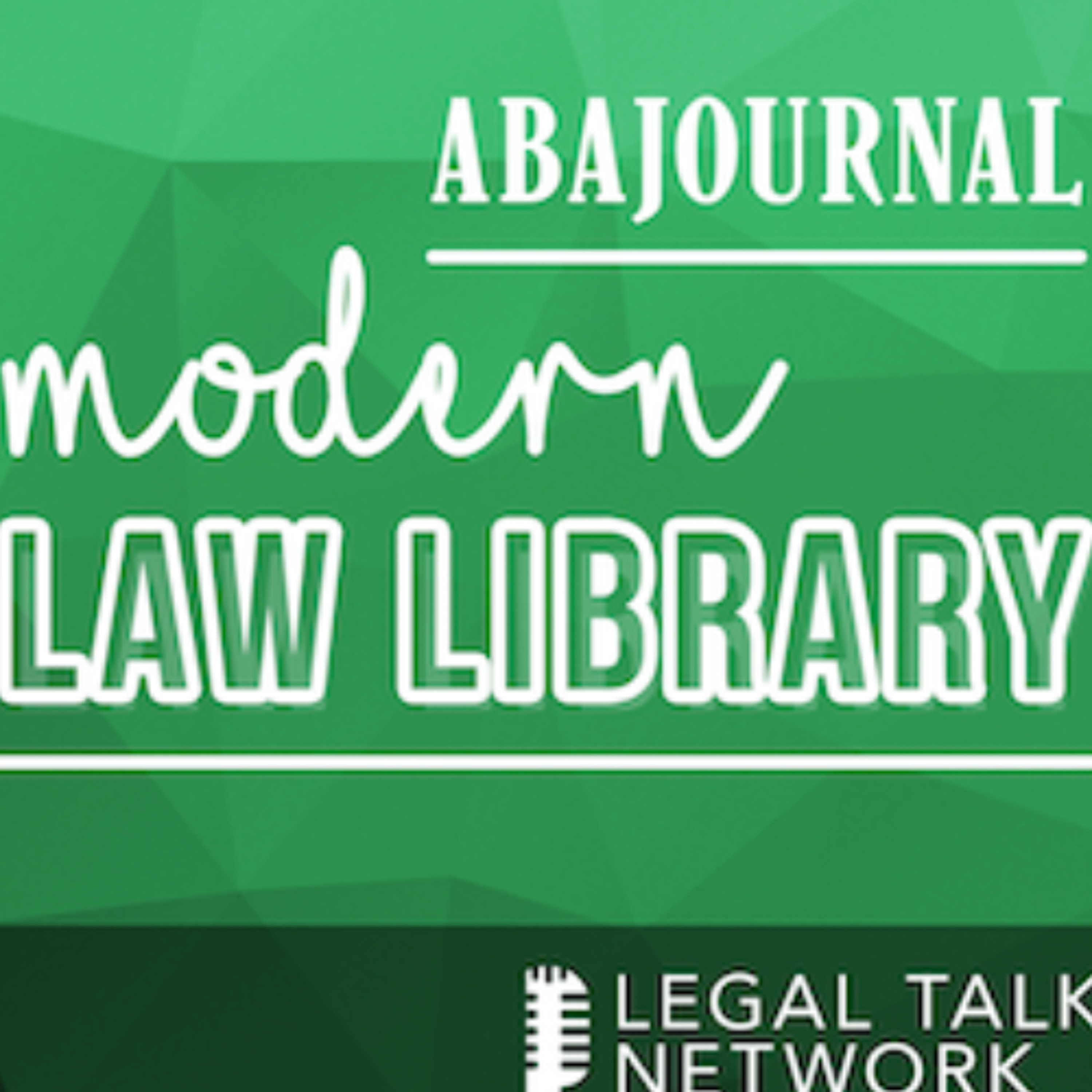 Legal Talk NetworkThis Harvard Law prof thinks constitutional theory is a terrible way to pick a judgeWhat if we are asking the wrong questions when selecting American judges? Mark Tushnet thinks our current criteria might be off.
“We should look for judges who are likely to display good judgment in their rulings … and we shouldn’t care whether they have a good theory about how to interpret the Constitution as a whole—and maybe we should worry a bit if they think they have such a theory,” the Harvard Law professor writes in his new book, Who Am I to Judge? Judicial Craft Versus Constitutional Theory.
In looking at what qualities were shared by great Supreme Court justi...2025-03-0435 min
Legal Talk NetworkThis Harvard Law prof thinks constitutional theory is a terrible way to pick a judgeWhat if we are asking the wrong questions when selecting American judges? Mark Tushnet thinks our current criteria might be off.
“We should look for judges who are likely to display good judgment in their rulings … and we shouldn’t care whether they have a good theory about how to interpret the Constitution as a whole—and maybe we should worry a bit if they think they have such a theory,” the Harvard Law professor writes in his new book, Who Am I to Judge? Judicial Craft Versus Constitutional Theory.
In looking at what qualities were shared by great Supreme Court justi...2025-03-0435 min Supreme Betrayal: How the Supreme Court and Constitutional Law Have Failed AmericaWhy Have a Constitution--An Introduction to Tushnet's TakeAfter our discussion of the first month of the Trump administration and constitutional law, we return to our exploration of constitutional theory—this time turning away from theories of interpretation to theories about constitutional foundations: What’s the best story about why people adopt constitutions? This episode begins to examine stories that say that constitutions are good ways—maybe the only way—to work out how to peacefully resolve their disagreements about what ought to be done through what we call ordinary politics. We look at some reasons for (and against) entrenching the “rules about ruling”—and expose some disagreements about constitu...2025-03-0153 min
Supreme Betrayal: How the Supreme Court and Constitutional Law Have Failed AmericaWhy Have a Constitution--An Introduction to Tushnet's TakeAfter our discussion of the first month of the Trump administration and constitutional law, we return to our exploration of constitutional theory—this time turning away from theories of interpretation to theories about constitutional foundations: What’s the best story about why people adopt constitutions? This episode begins to examine stories that say that constitutions are good ways—maybe the only way—to work out how to peacefully resolve their disagreements about what ought to be done through what we call ordinary politics. We look at some reasons for (and against) entrenching the “rules about ruling”—and expose some disagreements about constitu...2025-03-0153 min Supreme Betrayal: How the Supreme Court and Constitutional Law Have Failed AmericaThe Trump Administraton One Month In--Crisis, Revolution, What?This is a “current events” episode. We discuss whether, one month in, we should think about the Trump administration as initiating a constitution crisis or a constitutional revolution--regime change at home. Should we think of courts as the opposition’s Obi-Wan Kenobi—its only hope—or as doing nothing more than putting speed bumps in Trump’s way (and doing that might be good enough). Moving outside our wheelhouse we also offer some amateur political analysis of the conditions for Trump’s political success or failure with a project of political transformation.2025-02-2151 min
Supreme Betrayal: How the Supreme Court and Constitutional Law Have Failed AmericaThe Trump Administraton One Month In--Crisis, Revolution, What?This is a “current events” episode. We discuss whether, one month in, we should think about the Trump administration as initiating a constitution crisis or a constitutional revolution--regime change at home. Should we think of courts as the opposition’s Obi-Wan Kenobi—its only hope—or as doing nothing more than putting speed bumps in Trump’s way (and doing that might be good enough). Moving outside our wheelhouse we also offer some amateur political analysis of the conditions for Trump’s political success or failure with a project of political transformation.2025-02-2151 min Supreme Betrayal: How the Supreme Court and Constitutional Law Have Failed AmericaBack to Theory--Living Constitutionalism and Eclectic ApproachsThis episode discusses living constitutionalism and what we call eclectic approaches to constitutional interpretation such as Phillip Bobbitt’s “modalities” approach. We argue that such approaches have some virtues—including greater descriptive accuracy than originalism and democracy-focused approaches—but significant weaknesses. We also begin to introduce Tushnet’s “craft” account of constitutional interpretation, to be developed in more detail in later episodes.2025-02-0555 min
Supreme Betrayal: How the Supreme Court and Constitutional Law Have Failed AmericaBack to Theory--Living Constitutionalism and Eclectic ApproachsThis episode discusses living constitutionalism and what we call eclectic approaches to constitutional interpretation such as Phillip Bobbitt’s “modalities” approach. We argue that such approaches have some virtues—including greater descriptive accuracy than originalism and democracy-focused approaches—but significant weaknesses. We also begin to introduce Tushnet’s “craft” account of constitutional interpretation, to be developed in more detail in later episodes.2025-02-0555 min Supreme Betrayal: How the Supreme Court and Constitutional Law Have Failed AmericaCurrent Events--The Trump Administration ArrivesThis episode deals with "current events"--some of the constitutional issues swirling around the arrival of the second Trump Administration. We discuss the use of the presidential power to pardon by Biden and Trump (and disagree a bit about whether there are legal limits on that power), the implications of the collapse of the criminal cases against Trump, the TikTok case and the effort to eliminate birthright citizenship and their relationship to originalist constitutional theory.2025-01-2553 min
Supreme Betrayal: How the Supreme Court and Constitutional Law Have Failed AmericaCurrent Events--The Trump Administration ArrivesThis episode deals with "current events"--some of the constitutional issues swirling around the arrival of the second Trump Administration. We discuss the use of the presidential power to pardon by Biden and Trump (and disagree a bit about whether there are legal limits on that power), the implications of the collapse of the criminal cases against Trump, the TikTok case and the effort to eliminate birthright citizenship and their relationship to originalist constitutional theory.2025-01-2553 min Supreme Betrayal: How the Supreme Court and Constitutional Law Have Failed AmericaDemocratic Theories TwoWe continue our discussion of theories of judicial review that say it should enforce--and reinforce--democracy: footnote 4 theories and John Hart Ely. We argue that these theories run up against contradictions when they try to specify particular forms of democracy that they're trying to reinforce. As many have argued these theories can be quite narrow, leaving untouched forms of democratic failure that ought to be remedied, or quite broad, giving courts the power to displace ordinary legislation across extremely wide swathes of public policy. We also discuss Bruce Ackerman's effort to distinguish between constitutional politics, whose outcomes the courts should enforce...2025-01-0935 min
Supreme Betrayal: How the Supreme Court and Constitutional Law Have Failed AmericaDemocratic Theories TwoWe continue our discussion of theories of judicial review that say it should enforce--and reinforce--democracy: footnote 4 theories and John Hart Ely. We argue that these theories run up against contradictions when they try to specify particular forms of democracy that they're trying to reinforce. As many have argued these theories can be quite narrow, leaving untouched forms of democratic failure that ought to be remedied, or quite broad, giving courts the power to displace ordinary legislation across extremely wide swathes of public policy. We also discuss Bruce Ackerman's effort to distinguish between constitutional politics, whose outcomes the courts should enforce...2025-01-0935 min Broken LawEpisode 165: Judging the Failure of Constitutional TheoryWhat is constitutional theory and do judges actually need one? Mark Tushnet joins Christopher Wright Durocher to discuss his new book, Who Am I to Judge? Judicial Craft Versus Constitutional Theory, and how reasoned judgment can lead the way forward.Join the Progressive Legal Movement Today: ACSLaw.orgHost: Christopher Wright Durocher, Vice President of Policy and ProgramGuest: Mark Tushnet, William Nelson Cromwell Professor of Law, Emeritus, Harvard Law SchoolLink: Who Am I to Judge? Judicial Craft Versus Constitutional Theory, by...2025-01-0740 min
Broken LawEpisode 165: Judging the Failure of Constitutional TheoryWhat is constitutional theory and do judges actually need one? Mark Tushnet joins Christopher Wright Durocher to discuss his new book, Who Am I to Judge? Judicial Craft Versus Constitutional Theory, and how reasoned judgment can lead the way forward.Join the Progressive Legal Movement Today: ACSLaw.orgHost: Christopher Wright Durocher, Vice President of Policy and ProgramGuest: Mark Tushnet, William Nelson Cromwell Professor of Law, Emeritus, Harvard Law SchoolLink: Who Am I to Judge? Judicial Craft Versus Constitutional Theory, by...2025-01-0740 min Supreme Betrayal: How the Supreme Court and Constitutional Law Have Failed AmericaDemocratic Theories OneWe now begin to explore alternatives to originalism as a theory of constitutional interpretation. This episode and the next deal with approaches that say that courts can promote democracy through constitutional review. This time we take up an old and mostly abandoned approach advocated by James Bardley Thayer in 1892, that courts should invalidate statutes only if they are obviously unreasonable. Thayer said that was the right approach because legislators should and did take their responsibility to adhere to the Constitution seriously. Most of discussion challenges that assumption.2024-12-2627 min
Supreme Betrayal: How the Supreme Court and Constitutional Law Have Failed AmericaDemocratic Theories OneWe now begin to explore alternatives to originalism as a theory of constitutional interpretation. This episode and the next deal with approaches that say that courts can promote democracy through constitutional review. This time we take up an old and mostly abandoned approach advocated by James Bardley Thayer in 1892, that courts should invalidate statutes only if they are obviously unreasonable. Thayer said that was the right approach because legislators should and did take their responsibility to adhere to the Constitution seriously. Most of discussion challenges that assumption.2024-12-2627 min Supreme Betrayal: How the Supreme Court and Constitutional Law Have Failed AmericaOriginalism Take TwoWe continue our discussion of originalism, developing two
themes: defenses and criticisms of the original constitution articulated by prominent African American thinkers--Barbara Jordan, Thurgood Marshall, and Frederick Douglass--that bring out the distinction between the Constitution as enforceable law and as symbol of aspirations; and historians' critiques of originalism as developed most prominently recently by Jonathan Gienapp. The two of us disagree about some important details, but end up agreeing that at the very least originalism doesn't accurately describe the way even purported originalists among the justices actually seek to justify their decisions.2024-12-2051 min
Supreme Betrayal: How the Supreme Court and Constitutional Law Have Failed AmericaOriginalism Take TwoWe continue our discussion of originalism, developing two
themes: defenses and criticisms of the original constitution articulated by prominent African American thinkers--Barbara Jordan, Thurgood Marshall, and Frederick Douglass--that bring out the distinction between the Constitution as enforceable law and as symbol of aspirations; and historians' critiques of originalism as developed most prominently recently by Jonathan Gienapp. The two of us disagree about some important details, but end up agreeing that at the very least originalism doesn't accurately describe the way even purported originalists among the justices actually seek to justify their decisions.2024-12-2051 min Supreme Betrayal: How the Supreme Court and Constitutional Law Have Failed AmericaOriginalism Take OneThis is the first of two episodes on the constitutional theory of originalism. This time we look at originalism from the inside; next time we offer broader criticisms. We spend a fair amount of time defining originalism's various versions and distinguish between academic originalism and originalism as practiced by the courts. In the end, we argue, academic originalism is difficult though not impossible to defend, but judicial originalism fails miserably at doing what its proponents claim orignalism does--keep judges from imposing their personal policy preferences in the guise of interpreting the Constitution.2024-12-0944 min
Supreme Betrayal: How the Supreme Court and Constitutional Law Have Failed AmericaOriginalism Take OneThis is the first of two episodes on the constitutional theory of originalism. This time we look at originalism from the inside; next time we offer broader criticisms. We spend a fair amount of time defining originalism's various versions and distinguish between academic originalism and originalism as practiced by the courts. In the end, we argue, academic originalism is difficult though not impossible to defend, but judicial originalism fails miserably at doing what its proponents claim orignalism does--keep judges from imposing their personal policy preferences in the guise of interpreting the Constitution.2024-12-0944 min Supreme Betrayal: How the Supreme Court and Constitutional Law Have Failed AmericaAffirmative action, gun safety, gerrymandering--how the Supreme Court interferes witjh ordinary policy akingOur lens broadens to deal with three issues of public policy where the Supreme Court has interfered with ordinary policy making: affirmative action, gun safety, and partisan gerrymandering. We discuss more briefly than in prior episodes the possible justifications for that interference and argue that those justifications aren't strong enough to overcome the presumption that ordinary policies should be determined by ordinary politics.2024-11-2640 min
Supreme Betrayal: How the Supreme Court and Constitutional Law Have Failed AmericaAffirmative action, gun safety, gerrymandering--how the Supreme Court interferes witjh ordinary policy akingOur lens broadens to deal with three issues of public policy where the Supreme Court has interfered with ordinary policy making: affirmative action, gun safety, and partisan gerrymandering. We discuss more briefly than in prior episodes the possible justifications for that interference and argue that those justifications aren't strong enough to overcome the presumption that ordinary policies should be determined by ordinary politics.2024-11-2640 min Supreme Betrayal: How the Supreme Court and Constitutional Law Have Failed AmericaBetraying America by Defending Donald TrumpWe discuss the Supreme Court's interference with the 2024 election by slow walking its consideration of Donald Trump's claim that he was immune from prosecution for his actions in connection with the January 6 insurrection. And we criticize the Court's ultimate decision for its incoherence, failure to provide guidance for the future, and inconsistency with basic ideas about our Constitution and the rule of law.2024-11-1834 min
Supreme Betrayal: How the Supreme Court and Constitutional Law Have Failed AmericaBetraying America by Defending Donald TrumpWe discuss the Supreme Court's interference with the 2024 election by slow walking its consideration of Donald Trump's claim that he was immune from prosecution for his actions in connection with the January 6 insurrection. And we criticize the Court's ultimate decision for its incoherence, failure to provide guidance for the future, and inconsistency with basic ideas about our Constitution and the rule of law.2024-11-1834 min Supreme Betrayal: How the Supreme Court and Constitutional Law Have Failed AmericaThinking About the Constitution After the 2024 Elections2024-11-0838 min
Supreme Betrayal: How the Supreme Court and Constitutional Law Have Failed AmericaThinking About the Constitution After the 2024 Elections2024-11-0838 min Supreme Betrayal: How the Supreme Court and Constitutional Law Have Failed AmericaThe Dobbs DecisionProgressives like us have vigorously criticized the Dobbs decision. Why? Doesn't it return a public policy question to the people for democratic decision-making? You'll hear our criticisms of the Dobbs decision, mostly for its internal logic, and our disagreements about the underlying issue--but our ultimate agreement that there's a fair amount to be said by people on our side of the political spectrum in favor of keeping the Court from constitutionalizing the abortion issue.2024-11-041h 01
Supreme Betrayal: How the Supreme Court and Constitutional Law Have Failed AmericaThe Dobbs DecisionProgressives like us have vigorously criticized the Dobbs decision. Why? Doesn't it return a public policy question to the people for democratic decision-making? You'll hear our criticisms of the Dobbs decision, mostly for its internal logic, and our disagreements about the underlying issue--but our ultimate agreement that there's a fair amount to be said by people on our side of the political spectrum in favor of keeping the Court from constitutionalizing the abortion issue.2024-11-041h 01 Supreme Betrayal: How the Supreme Court and Constitutional Law Have Failed AmericaHow We Got Here -- Part IIThe episode deals with Trump's Supreme Court appointments and the effects of life tenureon the timing of appointments (and departures).On Facebook: Mark TushnetOn X: @Mark_Tushnet
2024-10-2725 min
Supreme Betrayal: How the Supreme Court and Constitutional Law Have Failed AmericaHow We Got Here -- Part IIThe episode deals with Trump's Supreme Court appointments and the effects of life tenureon the timing of appointments (and departures).On Facebook: Mark TushnetOn X: @Mark_Tushnet
2024-10-2725 min Supreme Betrayal: How the Supreme Court and Constitutional Law Have Failed AmericaHow We Got Here -- Part IThis episode explores the reasons why the modern Supreme Court is out of control and why the mechanisms that have historically kept it (more or less) in control no longer work2024-10-1125 min
Supreme Betrayal: How the Supreme Court and Constitutional Law Have Failed AmericaHow We Got Here -- Part IThis episode explores the reasons why the modern Supreme Court is out of control and why the mechanisms that have historically kept it (more or less) in control no longer work2024-10-1125 min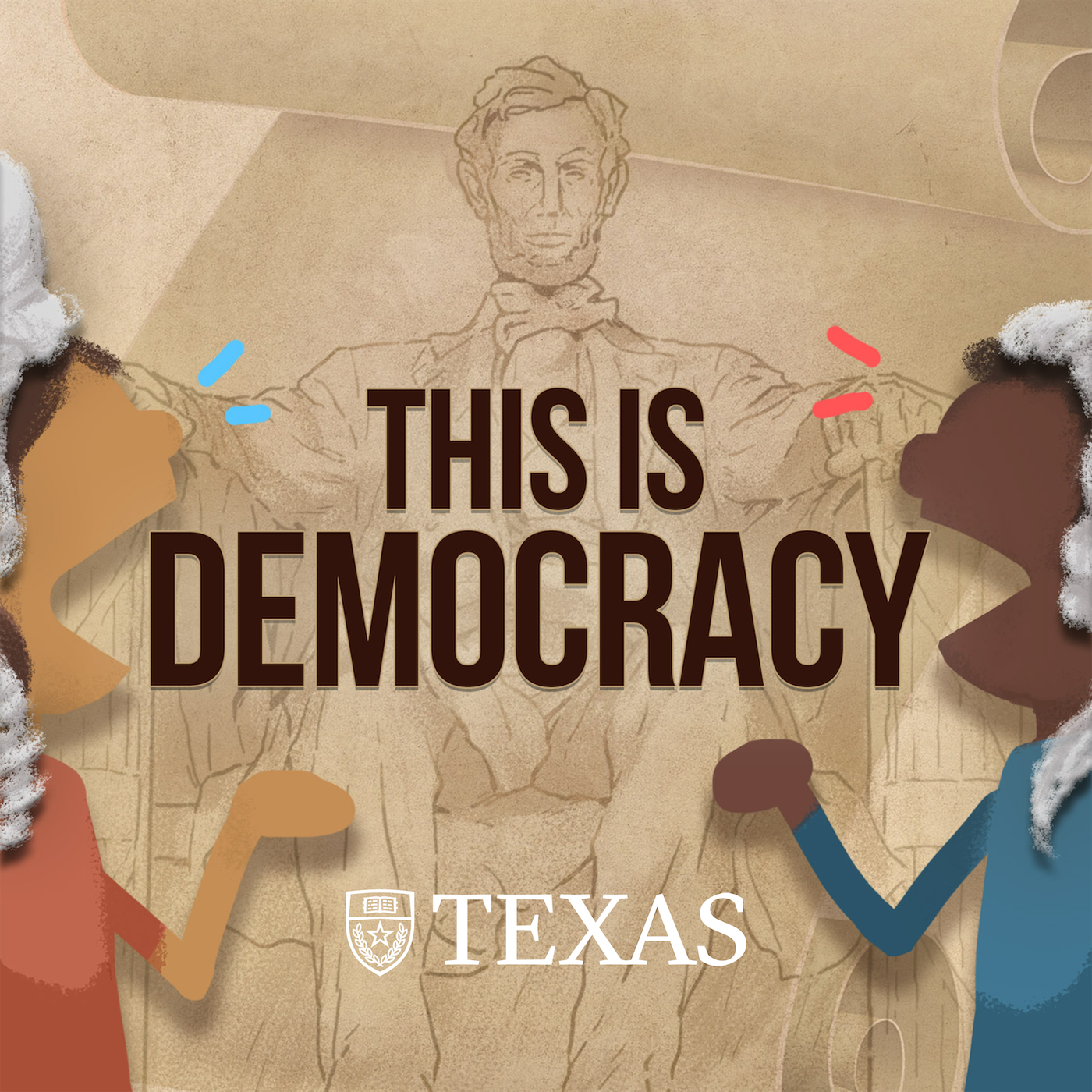 This is DemocracyThis is Democracy – Episode 272: Supreme Court ReformsThis week, Jeremi and Zachary are joined by Sanford Levinson to discuss the current state of the Supreme Court, recent efforts by Joe Biden to propose reforms, and how effective these proposals would be in practice.
Zachary sets the scene with his poem entitled, "The Judges."
Sanford Levinson, who holds the W. St. John Garwood and W. St. John Garwood, Jr. Centennial Chair in Law, joined the University of Texas Law School in 1980. Previously a member of the Department of Politics at Princeton University, he is also a Professor in the Department of Government at...2024-08-0158 min
This is DemocracyThis is Democracy – Episode 272: Supreme Court ReformsThis week, Jeremi and Zachary are joined by Sanford Levinson to discuss the current state of the Supreme Court, recent efforts by Joe Biden to propose reforms, and how effective these proposals would be in practice.
Zachary sets the scene with his poem entitled, "The Judges."
Sanford Levinson, who holds the W. St. John Garwood and W. St. John Garwood, Jr. Centennial Chair in Law, joined the University of Texas Law School in 1980. Previously a member of the Department of Politics at Princeton University, he is also a Professor in the Department of Government at...2024-08-0158 min The Future Law Podcast1.9.1 Mark Tushnet, Harvard Law SchoolProfessor Mark Tushnet of Harvard Law School is our guest. Professor Tushnet talks with Dan Hunter about the changes that he’s seen in US legal education over his long and illustrious career, and offers some suggestions regarding how US law schools need to change to respond to the challenges ahead.
[This episode was published originally on August 4, 2019.]
2024-06-2435 min
The Future Law Podcast1.9.1 Mark Tushnet, Harvard Law SchoolProfessor Mark Tushnet of Harvard Law School is our guest. Professor Tushnet talks with Dan Hunter about the changes that he’s seen in US legal education over his long and illustrious career, and offers some suggestions regarding how US law schools need to change to respond to the challenges ahead.
[This episode was published originally on August 4, 2019.]
2024-06-2435 min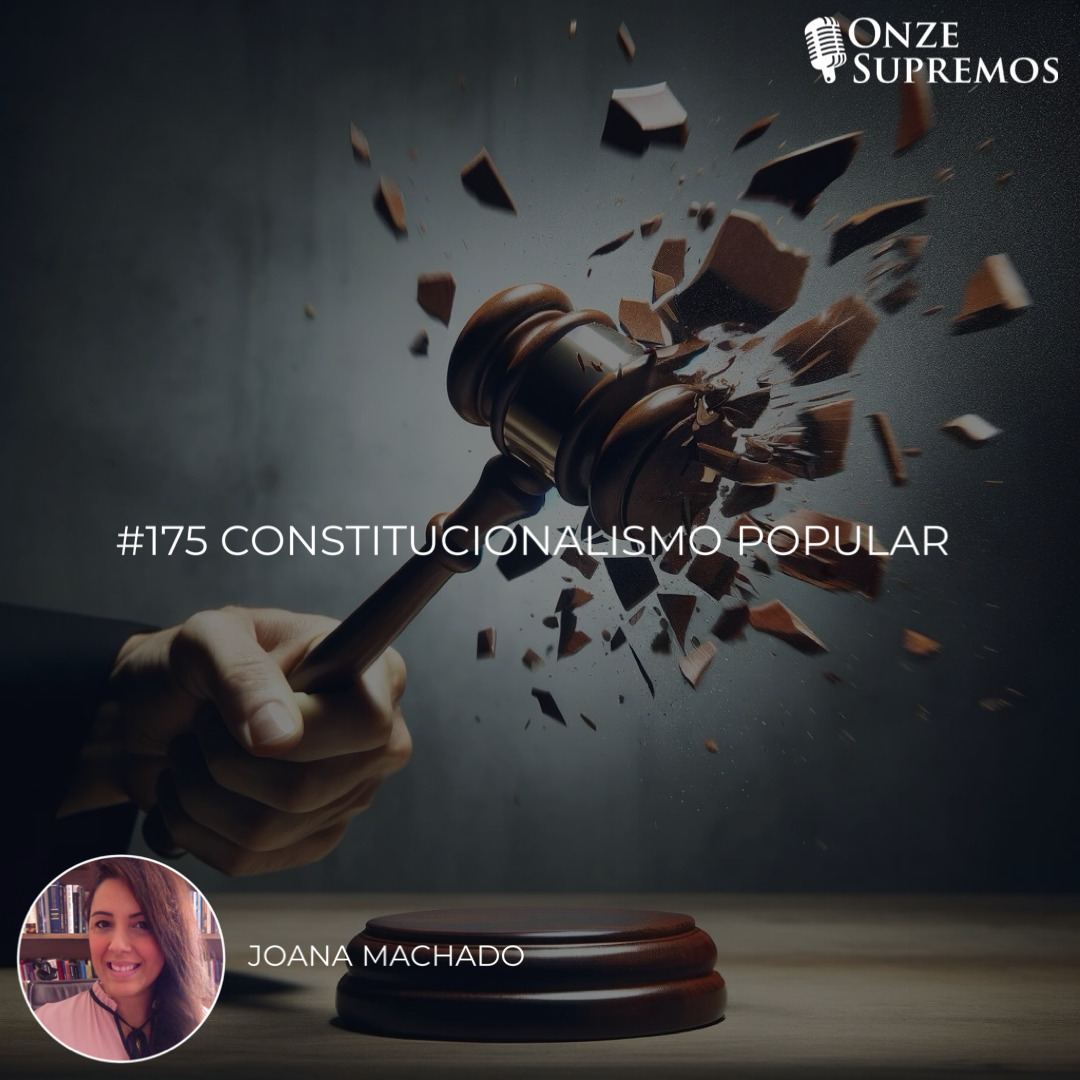 Onze Supremos#175 Constitucionalismo Popular (com Joana Machado)No episódio desta semana o Onze recebe Joana Machado para falar sobre o constitucionalismo popular no pensamento de Mark Tushnet, que desenvolve uma teoria que se opõe ao Judicial Review.
Lattes da convidada: http://lattes.cnpq.br/3145804659613320
Conheça o clube do livro jurídico da Contracorrente: https://www.quebracorrente.com.br/
Índice
03:53 Apresentação do convidado
05:56 O que é constitucionalismo popular?
11:40 Resposta à Teoria dos Diálogos Institucionais
21:22 Contexto de surgimento do constitucionalismo popular
25:05 Ativismo Judicial: várias questões
01:11:51 Referências e indicações
Referênci...2024-02-021h 22
Onze Supremos#175 Constitucionalismo Popular (com Joana Machado)No episódio desta semana o Onze recebe Joana Machado para falar sobre o constitucionalismo popular no pensamento de Mark Tushnet, que desenvolve uma teoria que se opõe ao Judicial Review.
Lattes da convidada: http://lattes.cnpq.br/3145804659613320
Conheça o clube do livro jurídico da Contracorrente: https://www.quebracorrente.com.br/
Índice
03:53 Apresentação do convidado
05:56 O que é constitucionalismo popular?
11:40 Resposta à Teoria dos Diálogos Institucionais
21:22 Contexto de surgimento do constitucionalismo popular
25:05 Ativismo Judicial: várias questões
01:11:51 Referências e indicações
Referênci...2024-02-021h 22 This is DemocracyThis is Democracy – Episode 253: Bush v Gore: The LegacyIn this week's episode, Jeremi and Zachary are joined by Sanford Levinson to discuss the 2000 election, the Supreme Court decision that finalized it, and how this decision has had ramifications throughout modern history.
Zachary sets the scene with his poem entitled, "The Court Has Stopped the Count"
Sanford Levinson, who holds the W. St. John Garwood and W. St. John Garwood, Jr. Centennial Chair in Law, joined the University of Texas Law School in 1980. Previously a member of the Department of Politics at Princeton University, he is also a Professor in the Department of Government...2024-01-0854 min
This is DemocracyThis is Democracy – Episode 253: Bush v Gore: The LegacyIn this week's episode, Jeremi and Zachary are joined by Sanford Levinson to discuss the 2000 election, the Supreme Court decision that finalized it, and how this decision has had ramifications throughout modern history.
Zachary sets the scene with his poem entitled, "The Court Has Stopped the Count"
Sanford Levinson, who holds the W. St. John Garwood and W. St. John Garwood, Jr. Centennial Chair in Law, joined the University of Texas Law School in 1980. Previously a member of the Department of Politics at Princeton University, he is also a Professor in the Department of Government...2024-01-0854 min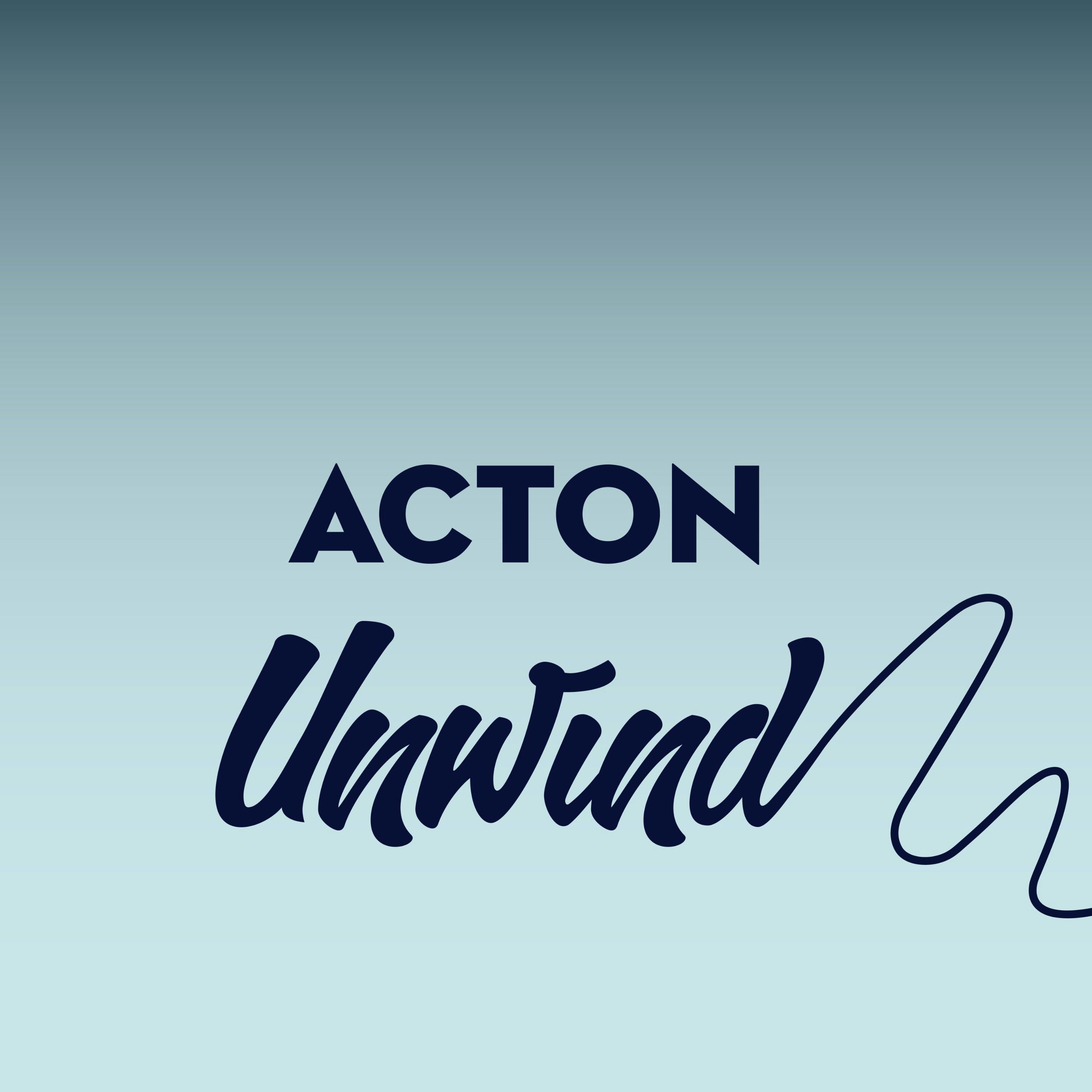 Acton UnwindConservatism Is Alive and WellThis week, Eric, Noah, and Emily are joined by Christine Rosen, senior fellow at the American Enterprise Institute and author of the cover story in the Summer 2023 issue of RELIGION & LIBERTY entitled “The Death of Conservatism Is Greatly Exaggerated.” Why have there been so many attempts to declare American conservatism dead? Why do so many of them, and in particular a recent piece from Jon Askonas in Compact magazine, ignore the fact that so many of the criticisms the current “New Right” levels at conservatism and American life are not all that new? How should we grapple with the effects o...2023-07-241h 02
Acton UnwindConservatism Is Alive and WellThis week, Eric, Noah, and Emily are joined by Christine Rosen, senior fellow at the American Enterprise Institute and author of the cover story in the Summer 2023 issue of RELIGION & LIBERTY entitled “The Death of Conservatism Is Greatly Exaggerated.” Why have there been so many attempts to declare American conservatism dead? Why do so many of them, and in particular a recent piece from Jon Askonas in Compact magazine, ignore the fact that so many of the criticisms the current “New Right” levels at conservatism and American life are not all that new? How should we grapple with the effects o...2023-07-241h 02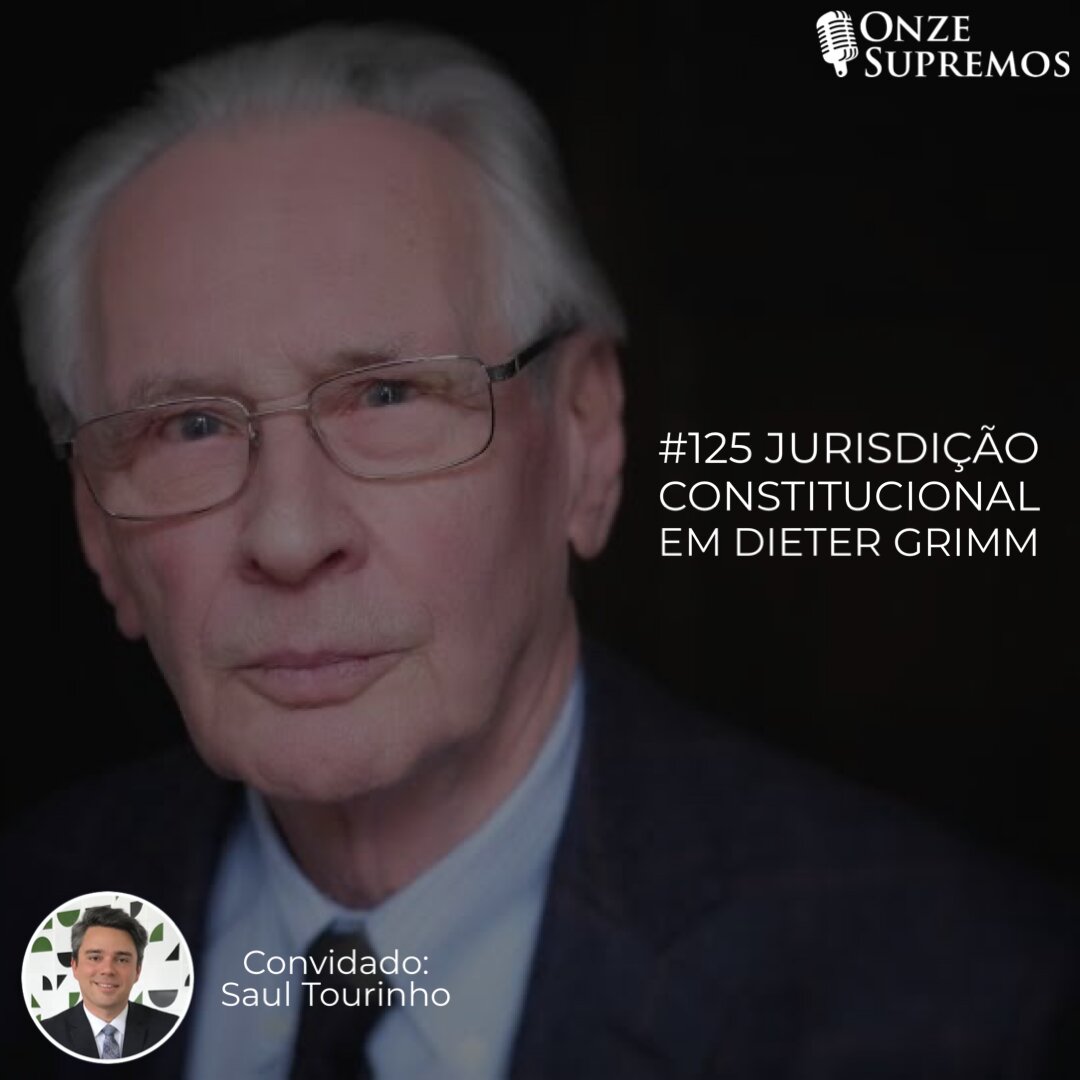 Onze Supremos#125 Jurisdição Constitucional em Dieter Grimm (com Saul Tourinho)O episódio desta semana vem com uma carga teórica absurda sobre Judicial Review. Tive o prazer de receber Saul Tourinho Leal, que está fazendo doutorado sob orientação do professor Dieter Grimm, ex-membro do Tribunal Federal Constitucional da Alemanha. Discutimos a obra do professor Grimm e suas críticas às doutrinas modernas que se opõem ao Judicial Review.
Lattes do convidado: http://lattes.cnpq.br/3932505807469261
Conheça o clube do livro jurídico da Contracorrente: https://www.quebracorrente.com.br/
Índice
00:00 Vinheta
01:24 Apresentação do convidado
03:46 A política no...2023-02-031h 16
Onze Supremos#125 Jurisdição Constitucional em Dieter Grimm (com Saul Tourinho)O episódio desta semana vem com uma carga teórica absurda sobre Judicial Review. Tive o prazer de receber Saul Tourinho Leal, que está fazendo doutorado sob orientação do professor Dieter Grimm, ex-membro do Tribunal Federal Constitucional da Alemanha. Discutimos a obra do professor Grimm e suas críticas às doutrinas modernas que se opõem ao Judicial Review.
Lattes do convidado: http://lattes.cnpq.br/3932505807469261
Conheça o clube do livro jurídico da Contracorrente: https://www.quebracorrente.com.br/
Índice
00:00 Vinheta
01:24 Apresentação do convidado
03:46 A política no...2023-02-031h 16 Critical Legal TheoryEpisode 3: David Trubek on the Birth of the Critical Legal Studies movement (Part Two)Professor Trubek traces the origins of the Critical Legal Studies movement back to Yale Law School in the 1960s -- where some junior faculty, including Professor Trubek, and a group of students, like Duncan Kennedy and Mark Tushnet, began developing a network of scholars and students who were shaped by the student movements and zeitgeist of the 1960s and were opposed to the hierarchies and traditions of law and legal education. Professor Trubek also sketches some of the interpersonal, intergenerational, theoretical, and methodological tensions that were apparent even at initial CLS meetings and that would continue to d...2022-07-2545 min
Critical Legal TheoryEpisode 3: David Trubek on the Birth of the Critical Legal Studies movement (Part Two)Professor Trubek traces the origins of the Critical Legal Studies movement back to Yale Law School in the 1960s -- where some junior faculty, including Professor Trubek, and a group of students, like Duncan Kennedy and Mark Tushnet, began developing a network of scholars and students who were shaped by the student movements and zeitgeist of the 1960s and were opposed to the hierarchies and traditions of law and legal education. Professor Trubek also sketches some of the interpersonal, intergenerational, theoretical, and methodological tensions that were apparent even at initial CLS meetings and that would continue to d...2022-07-2545 min Critical Legal TheoryEpisode 1: Introduction to the Critical Legal Theory PodcastThe Critical Legal Theory Podcast focuses on legal theorists, lawyers, activists, and organizers, who share their stories about the origins, evolution, and influence of critical legal theories.This season, we will share interviews with legal scholars (including Duncan Kennedy, David Trubek, Peter Gabel, Karl Klare, Mark Tushnet, and Kimberlé Crenshaw) regarding the history of the Critical Legal Studies Movement — also known as CLS.The interviews explore the intellectual, political, social, and economic context shaping the CLS movement and some of the effects of, and reactions to, CLS scholarship then and now.You can fin...2022-07-1206 min
Critical Legal TheoryEpisode 1: Introduction to the Critical Legal Theory PodcastThe Critical Legal Theory Podcast focuses on legal theorists, lawyers, activists, and organizers, who share their stories about the origins, evolution, and influence of critical legal theories.This season, we will share interviews with legal scholars (including Duncan Kennedy, David Trubek, Peter Gabel, Karl Klare, Mark Tushnet, and Kimberlé Crenshaw) regarding the history of the Critical Legal Studies Movement — also known as CLS.The interviews explore the intellectual, political, social, and economic context shaping the CLS movement and some of the effects of, and reactions to, CLS scholarship then and now.You can fin...2022-07-1206 min Critical Legal TheoryEpisode 2: David Trubek on the Birth of the Critical Legal Studies Movement (Part One)Professor Trubek traces the origins of the Critical Legal Studies movement back to Yale Law School in the 1960s -- where some junior faculty, including Professor Trubek, and a group of students, like Duncan Kennedy and Mark Tushnet, began developing a network of scholars and students who were shaped by the student movements and zeitgeist of the 1960s and were opposed to the hierarchies and traditions of law and legal education. Professor Trubek also sketches some of the interpersonal, intergenerational, theoretical, and methodological tensions that were apparent even at initial CLS meetings and that would continue to d...2022-07-1232 min
Critical Legal TheoryEpisode 2: David Trubek on the Birth of the Critical Legal Studies Movement (Part One)Professor Trubek traces the origins of the Critical Legal Studies movement back to Yale Law School in the 1960s -- where some junior faculty, including Professor Trubek, and a group of students, like Duncan Kennedy and Mark Tushnet, began developing a network of scholars and students who were shaped by the student movements and zeitgeist of the 1960s and were opposed to the hierarchies and traditions of law and legal education. Professor Trubek also sketches some of the interpersonal, intergenerational, theoretical, and methodological tensions that were apparent even at initial CLS meetings and that would continue to d...2022-07-1232 min DissedThurgood Marshall and the Machinery of DeathIn 1972, the Supreme Court ruled that capital punishment was being “so wantonly and so freakishly imposed” that it was “cruel and unusual in the same way that being struck by lightning is cruel and unusual.” But just four years later, the Court reversed course---ruling that with new procedures in place, states could continue executions without running afoul of the Eighth Amendment. Justice Thurgood Marshall wrote an impassioned dissent arguing that the death penalty is cruel and unusual under any circumstances. After hearing his experiences as a defense attorney in the South, it’s easy to understand why.Thanks to...2022-06-0838 min
DissedThurgood Marshall and the Machinery of DeathIn 1972, the Supreme Court ruled that capital punishment was being “so wantonly and so freakishly imposed” that it was “cruel and unusual in the same way that being struck by lightning is cruel and unusual.” But just four years later, the Court reversed course---ruling that with new procedures in place, states could continue executions without running afoul of the Eighth Amendment. Justice Thurgood Marshall wrote an impassioned dissent arguing that the death penalty is cruel and unusual under any circumstances. After hearing his experiences as a defense attorney in the South, it’s easy to understand why.Thanks to...2022-06-0838 min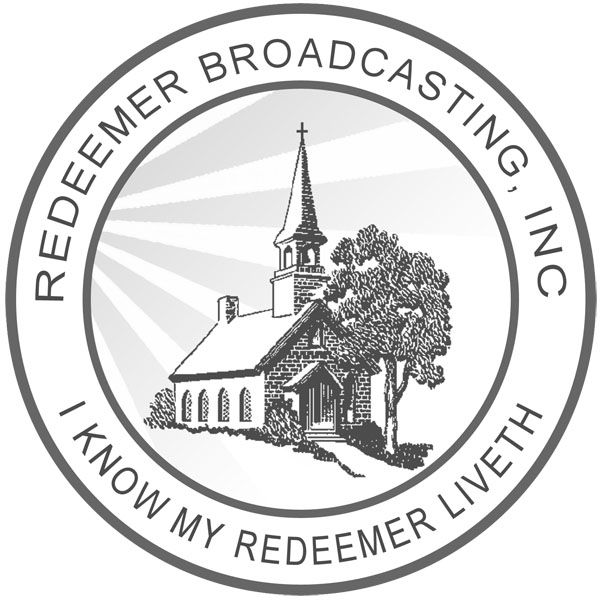 Redeemer Broadcasting : A Plain AnswerA Plain Answer: Overturning Roe v. Wade - Neither Radical Nor Conservative - Just the Correct Thing to Do - Thomas JippingRecently, a Supreme Court draft opinion (re: Dobbs v. Jackson) was leaked. Such a leak was unprecedented. The draft reveals the majority opinion that Roe was in error. The quality of the 1973 reasoning was faulty. The original ruling was not based on Constitutional law, and the ruling was deeply flawed. If this case is finally ruled upon at the court, and if they decide that Roe v. Wade was wrong, then the whole debate is simply returned to the states, where it rightfully belongs. If Roe v. Wade is overturned, we will have states that are heavily pro-Abortion, like New...2022-05-2127 min
Redeemer Broadcasting : A Plain AnswerA Plain Answer: Overturning Roe v. Wade - Neither Radical Nor Conservative - Just the Correct Thing to Do - Thomas JippingRecently, a Supreme Court draft opinion (re: Dobbs v. Jackson) was leaked. Such a leak was unprecedented. The draft reveals the majority opinion that Roe was in error. The quality of the 1973 reasoning was faulty. The original ruling was not based on Constitutional law, and the ruling was deeply flawed. If this case is finally ruled upon at the court, and if they decide that Roe v. Wade was wrong, then the whole debate is simply returned to the states, where it rightfully belongs. If Roe v. Wade is overturned, we will have states that are heavily pro-Abortion, like New...2022-05-2127 min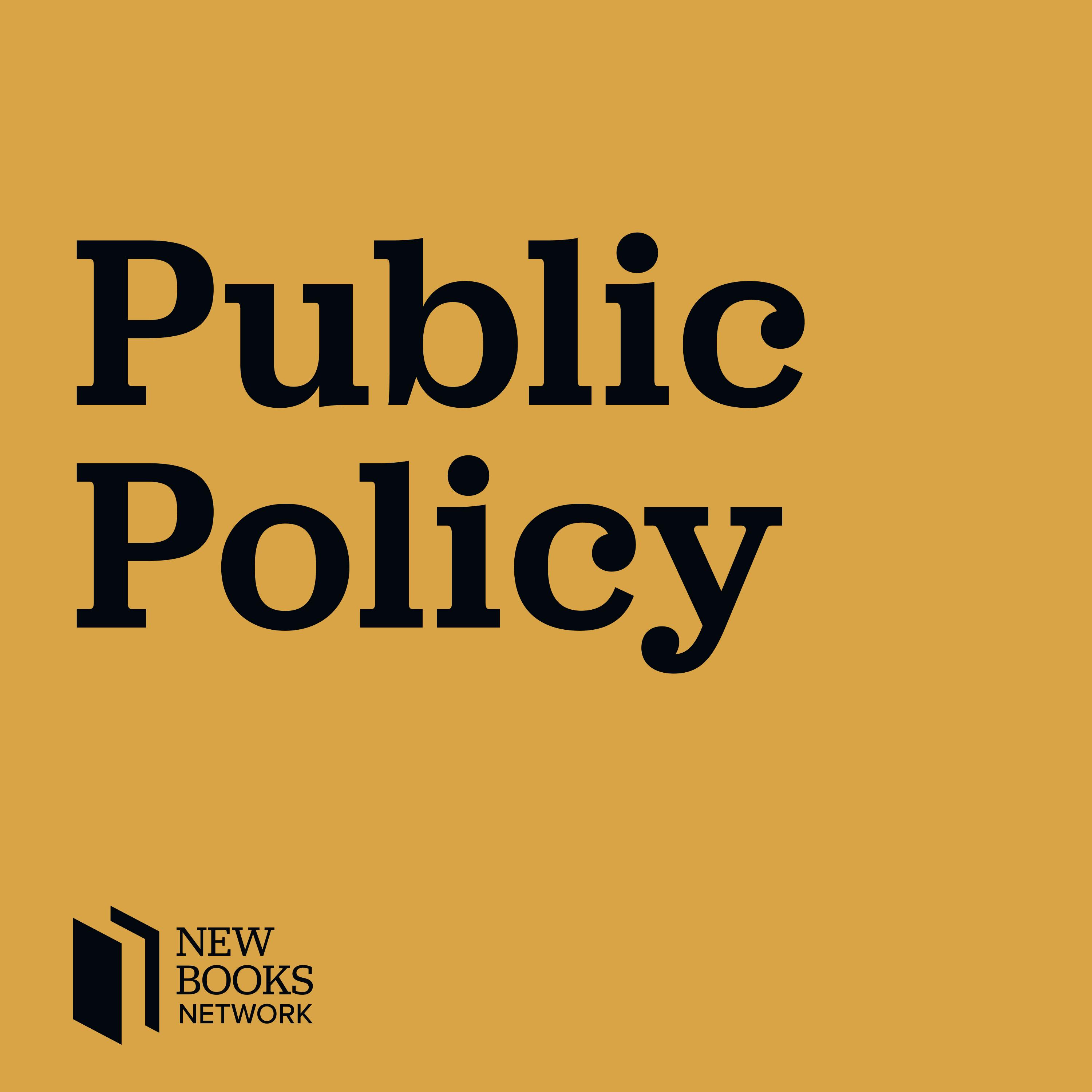 New Books in Public PolicyMark V. Tushnet, "The Hughes Court: From Progressivism to Pluralism, 1930 to 1941" (Cambridge UP, 2022)Mark V. Tushnet's book The Hughes Court: From Progressivism to Pluralism, 1930 to 1941 (Cambridge UP, 2022) describes the closing of one era in constitutional jurisprudence and the opening of another. This comprehensive study of the Supreme Court from 1930 to 1941 – when Charles Evans Hughes was Chief Justice – shows how nearly all justices, even the most conservative, accepted the broad premises of a Progressive theory of government and the Constitution. The Progressive view gradually increased its hold throughout the decade, but at its end, interest group pluralism began to influence the law. By 1941, constitutional and public law was discernibly different from what it had been in...2022-05-1157 min
New Books in Public PolicyMark V. Tushnet, "The Hughes Court: From Progressivism to Pluralism, 1930 to 1941" (Cambridge UP, 2022)Mark V. Tushnet's book The Hughes Court: From Progressivism to Pluralism, 1930 to 1941 (Cambridge UP, 2022) describes the closing of one era in constitutional jurisprudence and the opening of another. This comprehensive study of the Supreme Court from 1930 to 1941 – when Charles Evans Hughes was Chief Justice – shows how nearly all justices, even the most conservative, accepted the broad premises of a Progressive theory of government and the Constitution. The Progressive view gradually increased its hold throughout the decade, but at its end, interest group pluralism began to influence the law. By 1941, constitutional and public law was discernibly different from what it had been in...2022-05-1157 min New Books in LawMark V. Tushnet, "The Hughes Court: From Progressivism to Pluralism, 1930 to 1941" (Cambridge UP, 2022)Mark V. Tushnet's book The Hughes Court: From Progressivism to Pluralism, 1930 to 1941 (Cambridge UP, 2022) describes the closing of one era in constitutional jurisprudence and the opening of another. This comprehensive study of the Supreme Court from 1930 to 1941 – when Charles Evans Hughes was Chief Justice – shows how nearly all justices, even the most conservative, accepted the broad premises of a Progressive theory of government and the Constitution. The Progressive view gradually increased its hold throughout the decade, but at its end, interest group pluralism began to influence the law. By 1941, constitutional and public law was discernibly different from what it had been in...2022-05-1157 min
New Books in LawMark V. Tushnet, "The Hughes Court: From Progressivism to Pluralism, 1930 to 1941" (Cambridge UP, 2022)Mark V. Tushnet's book The Hughes Court: From Progressivism to Pluralism, 1930 to 1941 (Cambridge UP, 2022) describes the closing of one era in constitutional jurisprudence and the opening of another. This comprehensive study of the Supreme Court from 1930 to 1941 – when Charles Evans Hughes was Chief Justice – shows how nearly all justices, even the most conservative, accepted the broad premises of a Progressive theory of government and the Constitution. The Progressive view gradually increased its hold throughout the decade, but at its end, interest group pluralism began to influence the law. By 1941, constitutional and public law was discernibly different from what it had been in...2022-05-1157 min Exchanges: A Cambridge UP PodcastMark V. Tushnet, "The Hughes Court: From Progressivism to Pluralism, 1930 to 1941" (Cambridge UP, 2022)Mark V. Tushnet's book The Hughes Court: From Progressivism to Pluralism, 1930 to 1941 (Cambridge UP, 2022) describes the closing of one era in constitutional jurisprudence and the opening of another. This comprehensive study of the Supreme Court from 1930 to 1941 – when Charles Evans Hughes was Chief Justice – shows how nearly all justices, even the most conservative, accepted the broad premises of a Progressive theory of government and the Constitution. The Progressive view gradually increased its hold throughout the decade, but at its end, interest group pluralism began to influence the law. By 1941, constitutional and public law was discernibly different from what it had bee...2022-05-1157 min
Exchanges: A Cambridge UP PodcastMark V. Tushnet, "The Hughes Court: From Progressivism to Pluralism, 1930 to 1941" (Cambridge UP, 2022)Mark V. Tushnet's book The Hughes Court: From Progressivism to Pluralism, 1930 to 1941 (Cambridge UP, 2022) describes the closing of one era in constitutional jurisprudence and the opening of another. This comprehensive study of the Supreme Court from 1930 to 1941 – when Charles Evans Hughes was Chief Justice – shows how nearly all justices, even the most conservative, accepted the broad premises of a Progressive theory of government and the Constitution. The Progressive view gradually increased its hold throughout the decade, but at its end, interest group pluralism began to influence the law. By 1941, constitutional and public law was discernibly different from what it had bee...2022-05-1157 min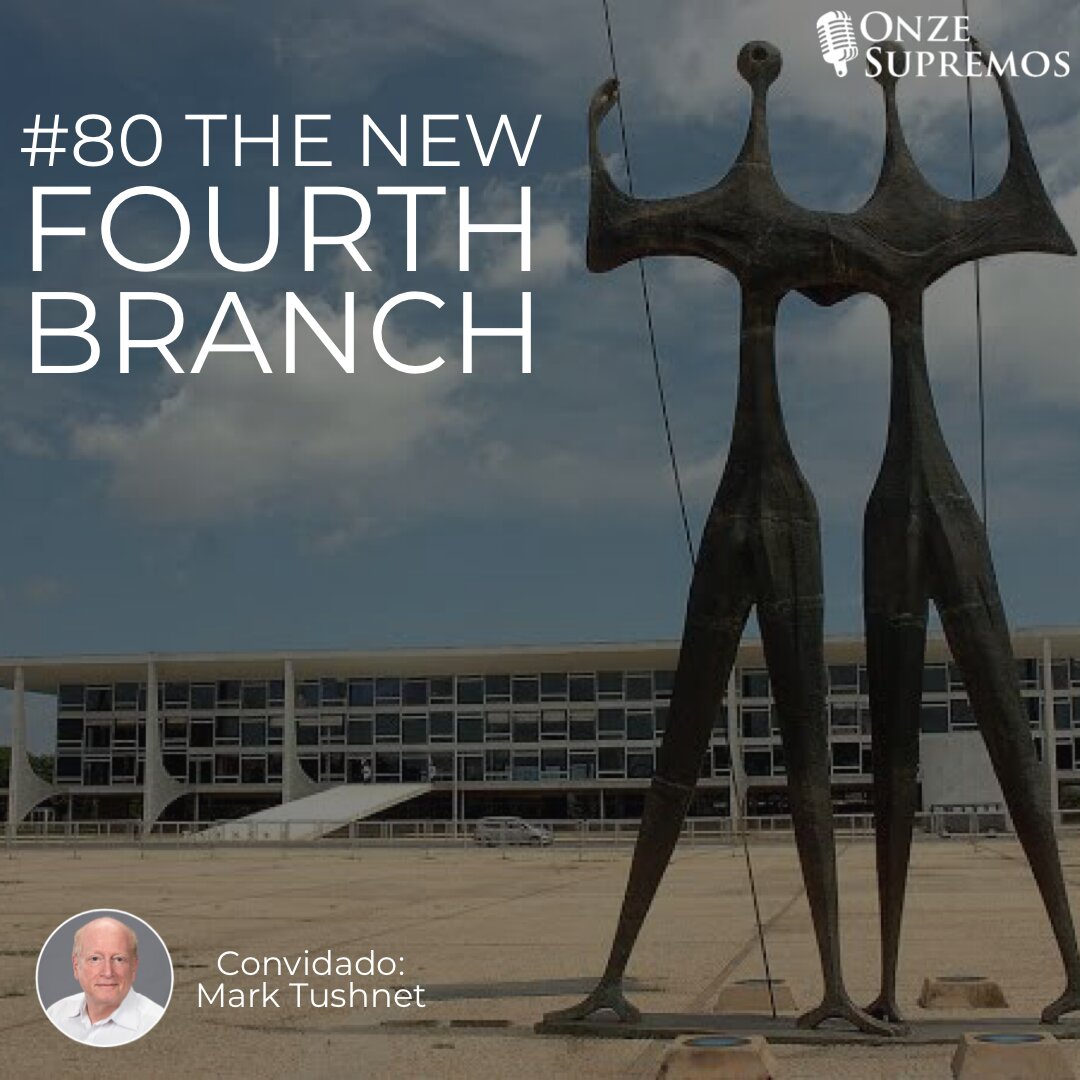 Onze Supremos#080 The New Fourth Branch (com Mark Tushnet)No nosso 80º episódio tivemos o prazer de entrevistar o professor Mark Tushnet (Harvard) pela segunda vez. Nessa conversa, discutimos sobre uma de suas últimas obras, "The New Fourth Branch" (O novo quarto Poder, em tradução livre), em que ele desenvolve um rico estudo de direito comparado sobre as instituições criadas para defender a democracia (Instituições de Proteção da Democracia - IPDs).
Currículo do convidado: https://hls.harvard.edu/faculty/directory/10906/Tushnet/
Índice
00:00 Vinheta
00:50 Apresentação do convidado
01:58 O que é o novo Quarto Poder?
04:10 A lógica estrutura...2022-03-0456 min
Onze Supremos#080 The New Fourth Branch (com Mark Tushnet)No nosso 80º episódio tivemos o prazer de entrevistar o professor Mark Tushnet (Harvard) pela segunda vez. Nessa conversa, discutimos sobre uma de suas últimas obras, "The New Fourth Branch" (O novo quarto Poder, em tradução livre), em que ele desenvolve um rico estudo de direito comparado sobre as instituições criadas para defender a democracia (Instituições de Proteção da Democracia - IPDs).
Currículo do convidado: https://hls.harvard.edu/faculty/directory/10906/Tushnet/
Índice
00:00 Vinheta
00:50 Apresentação do convidado
01:58 O que é o novo Quarto Poder?
04:10 A lógica estrutura...2022-03-0456 min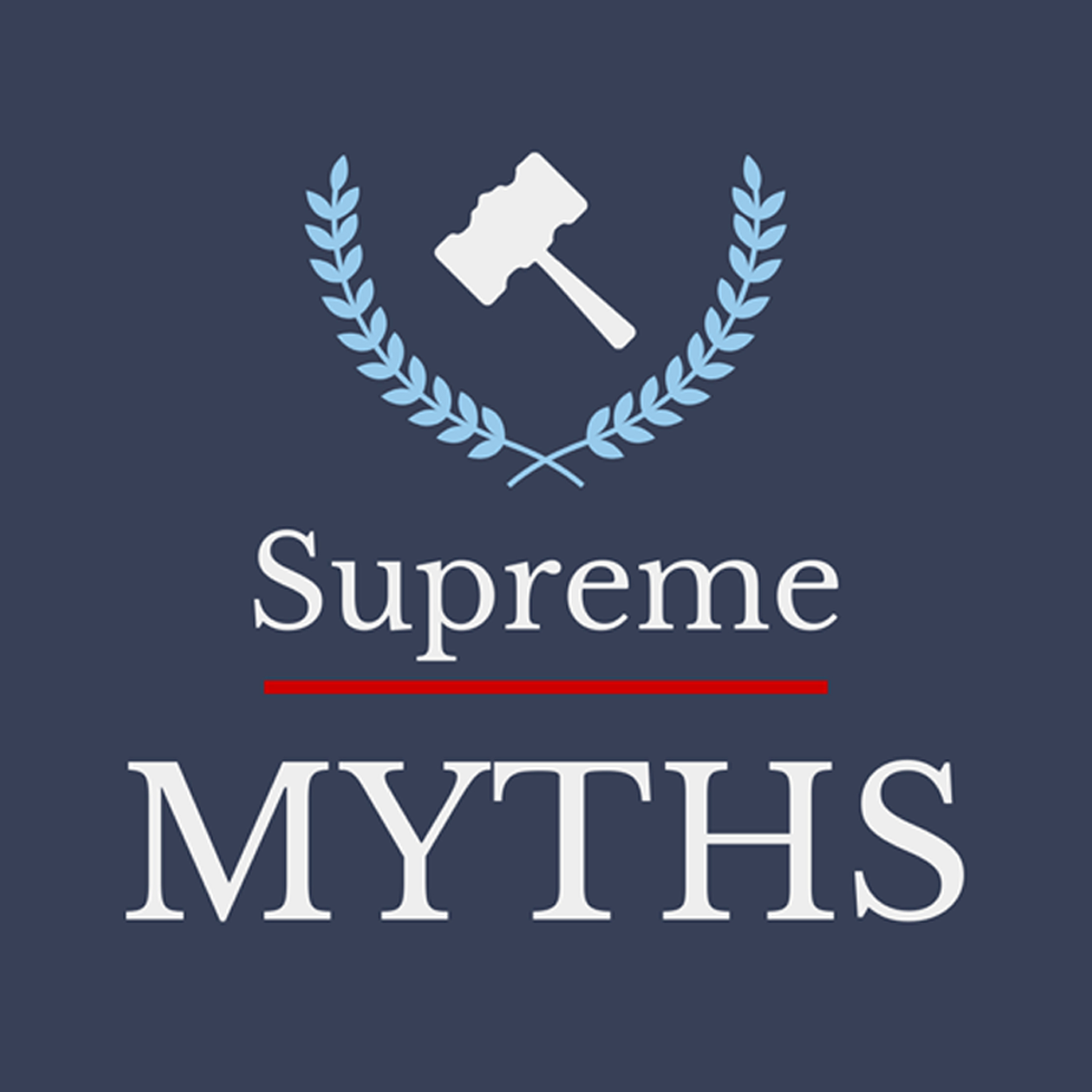 Supreme MythsProfessor Mark TushnetProfessor Mark Tushnet stops by Supreme Myths to discuss legal realism, SCOTUS, Court balancing/packing, and his great new book on the Hughes Court from 1930-1941.2022-02-171h 00
Supreme MythsProfessor Mark TushnetProfessor Mark Tushnet stops by Supreme Myths to discuss legal realism, SCOTUS, Court balancing/packing, and his great new book on the Hughes Court from 1930-1941.2022-02-171h 00 DissedJustice Roberts is Hot ‘n ColdThe idea of “court-packing,”⸺that is, adding seats to the court for political purposes⸺has recently gained steam for the first time in nearly 100 years. The last time we heard about court-packing, President Franklin Delano Roosevelt’s plan to add more justices was supposedly staved off by the infamous “switch in time that saved nine.” As the story goes, Justice Roberts (no, not THAT Roberts) strategically cast his vote in West Coast Hotel v. Parrish in way that subdued popular support for FDR’s proposal. But a closer look into that case reveals that not everything is as it seems, as well as...2021-12-0851 min
DissedJustice Roberts is Hot ‘n ColdThe idea of “court-packing,”⸺that is, adding seats to the court for political purposes⸺has recently gained steam for the first time in nearly 100 years. The last time we heard about court-packing, President Franklin Delano Roosevelt’s plan to add more justices was supposedly staved off by the infamous “switch in time that saved nine.” As the story goes, Justice Roberts (no, not THAT Roberts) strategically cast his vote in West Coast Hotel v. Parrish in way that subdued popular support for FDR’s proposal. But a closer look into that case reveals that not everything is as it seems, as well as...2021-12-0851 min Evropska četrtEvropska četrt 084: Democracy should never be taken for granted We discuss the rise of populists and authoritarians around the world and the reasons behind the worrying developments in Central and Eastern Europe.
Why are people losing faith in democracy, who is not doing their job and what could be done to stop the undemocratic forces.
#EuropeanQuarter #EvropskaČetrt
PROF. BOJAN BUGARIČ – Professor of Law at the School of Law at The University of Sheffield. He teaches and researches in the fields of constitutional law, comparative constitutional law, public law, EU law, law and democracy and law and development, broadly conce...2021-12-0528 min
Evropska četrtEvropska četrt 084: Democracy should never be taken for granted We discuss the rise of populists and authoritarians around the world and the reasons behind the worrying developments in Central and Eastern Europe.
Why are people losing faith in democracy, who is not doing their job and what could be done to stop the undemocratic forces.
#EuropeanQuarter #EvropskaČetrt
PROF. BOJAN BUGARIČ – Professor of Law at the School of Law at The University of Sheffield. He teaches and researches in the fields of constitutional law, comparative constitutional law, public law, EU law, law and democracy and law and development, broadly conce...2021-12-0528 min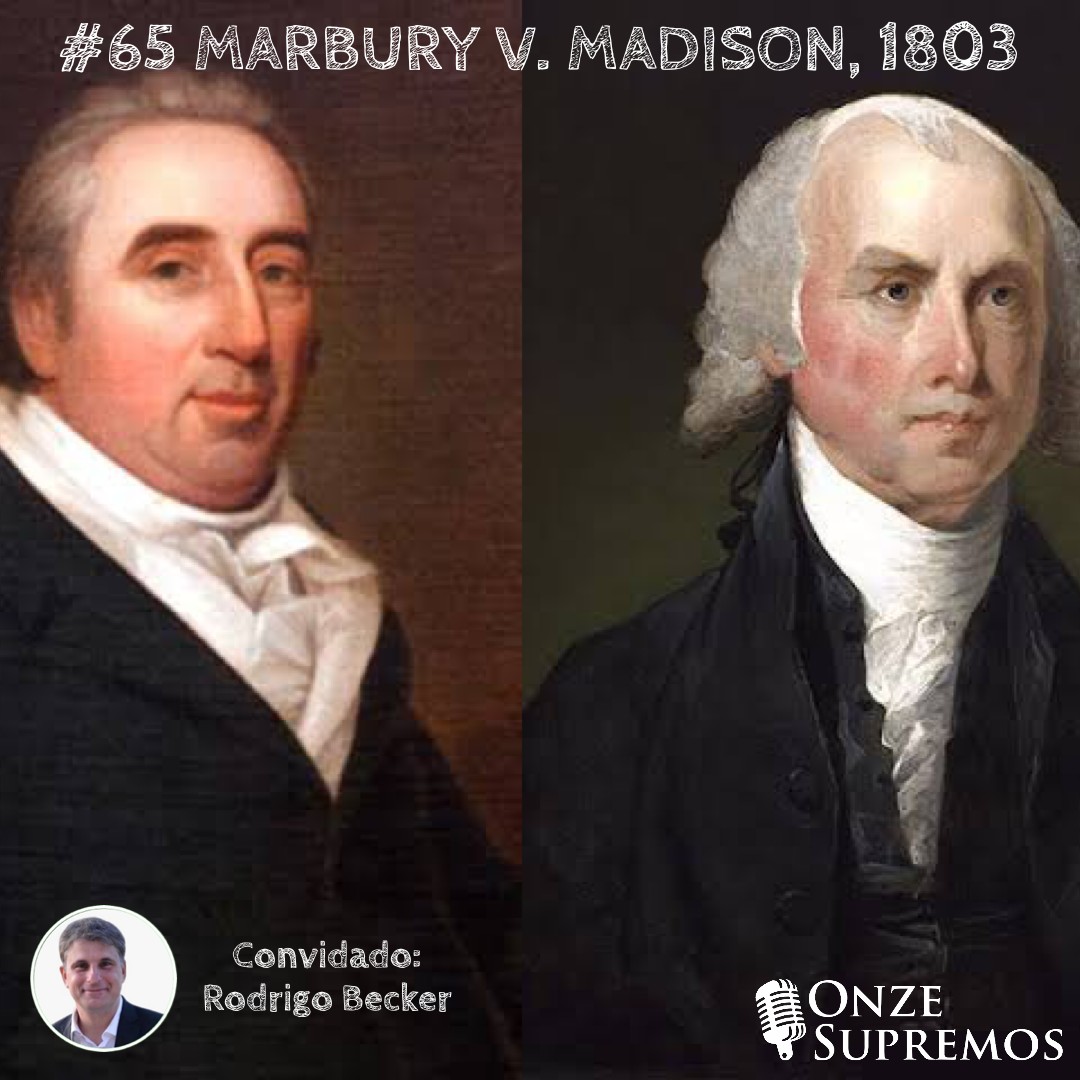 Onze Supremos#065 Marbury v. Madison, 1803 (com Rodrigo Becker)O episódio de hoje vai trabalhar ele, o mais famigerado de todos os casos da história do Direito: Marbury v. Madison. Com a ajuda do meu amigo e professor Rodrigo Becker, conversamos sobre o desenvolvimento do judicial review e as consequências advindas da decisão proferida pelo Chief Justice John Marshall no caso.
Índice
00:00 Vinheta
01:00 Apresentação do convidado
04:35 Contexto histórico
29:00 O processo
55:30 Repercussão da decisão
01:11:46 Constitucionalismo popular
01:16:51 Referências e indicações
Referências e indicações:
Suprema Corte dos Estado...2021-10-291h 23
Onze Supremos#065 Marbury v. Madison, 1803 (com Rodrigo Becker)O episódio de hoje vai trabalhar ele, o mais famigerado de todos os casos da história do Direito: Marbury v. Madison. Com a ajuda do meu amigo e professor Rodrigo Becker, conversamos sobre o desenvolvimento do judicial review e as consequências advindas da decisão proferida pelo Chief Justice John Marshall no caso.
Índice
00:00 Vinheta
01:00 Apresentação do convidado
04:35 Contexto histórico
29:00 O processo
55:30 Repercussão da decisão
01:11:46 Constitucionalismo popular
01:16:51 Referências e indicações
Referências e indicações:
Suprema Corte dos Estado...2021-10-291h 23 New Books in LawPostscript: The Supreme Court, Concealed Carry, and How Your Laws Might ChangeThe American media has been focused on the Supreme Court’s upcoming abortion cases but a decision in a critical Second Amendment case could overturn public safety laws for 25% of Americans. Next week, the Court will hear arguments in New York State Rifle & Pistol Association v. Bruen, a challenge to a 1911 New York State law that limits carrying guns outside the home. New York is a “may issue” state in which applications for concealed carry are not automatically granted but reviewed to determine if the person has “proper cause” to conceal a gun. We’ve not seen a Second Amendment case since He...2021-10-261h 02
New Books in LawPostscript: The Supreme Court, Concealed Carry, and How Your Laws Might ChangeThe American media has been focused on the Supreme Court’s upcoming abortion cases but a decision in a critical Second Amendment case could overturn public safety laws for 25% of Americans. Next week, the Court will hear arguments in New York State Rifle & Pistol Association v. Bruen, a challenge to a 1911 New York State law that limits carrying guns outside the home. New York is a “may issue” state in which applications for concealed carry are not automatically granted but reviewed to determine if the person has “proper cause” to conceal a gun. We’ve not seen a Second Amendment case since He...2021-10-261h 02 RevDem PodcastCorrective power of the populistsDo populists pose a threat to constitutional democracy? Are populists always the villains in our tales about democracy? Bojan Bugarič answers these questions in a conversation with Kasia Krzyżanowska. He also talks about his recent book on the relationship between constitutionalism and populism, co-authored with Mark Tushnet.2021-07-0736 min
RevDem PodcastCorrective power of the populistsDo populists pose a threat to constitutional democracy? Are populists always the villains in our tales about democracy? Bojan Bugarič answers these questions in a conversation with Kasia Krzyżanowska. He also talks about his recent book on the relationship between constitutionalism and populism, co-authored with Mark Tushnet.2021-07-0736 min PALcast#5 – Bojan Bugaric on varieties of populism and their differential impacts on law and democracyToday, Fabio talks to Bojan Bugaric, a public law professor at the University of Sheffield Law School, in the UK. Mark Tushnet, Bojan just launched a book entitled “Power to the People: Constitutionalism in the Age of Populism”. Fabio and Bojan discuss different kinds of populism, how they may affect law and democracy, and why it is worth investigating not only the consequences but also the causes of what Bojan calls "authoritarian populism"2021-05-2335 min
PALcast#5 – Bojan Bugaric on varieties of populism and their differential impacts on law and democracyToday, Fabio talks to Bojan Bugaric, a public law professor at the University of Sheffield Law School, in the UK. Mark Tushnet, Bojan just launched a book entitled “Power to the People: Constitutionalism in the Age of Populism”. Fabio and Bojan discuss different kinds of populism, how they may affect law and democracy, and why it is worth investigating not only the consequences but also the causes of what Bojan calls "authoritarian populism"2021-05-2335 min The Law of the United StatesProperty Law - Lecture V: UseThis podcast will discuss the use of property.
Derivative work from the following original:Stephen Clowney, James Grimmelmann, Michael Grynberg, Jeremy Sheff, and Rebecca Tushnet, Open Source Property. The casebook is licensed Creative Commons Attribution NonCommercial 4.0 International.
This derivative work is licensed the same as the original.2021-04-2535 min
The Law of the United StatesProperty Law - Lecture V: UseThis podcast will discuss the use of property.
Derivative work from the following original:Stephen Clowney, James Grimmelmann, Michael Grynberg, Jeremy Sheff, and Rebecca Tushnet, Open Source Property. The casebook is licensed Creative Commons Attribution NonCommercial 4.0 International.
This derivative work is licensed the same as the original.2021-04-2535 min The Law of the United StatesProperty Law - Lecture IV: TransfersThis podcast will discuss transfers of property.
Derivative work from the following original:Stephen Clowney, James Grimmelmann, Michael Grynberg, Jeremy Sheff, and Rebecca Tushnet, Open Source Property. The casebook is licensed Creative Commons Attribution NonCommercial 4.0 International.
This derivative work is licensed the same as the original.2021-04-2534 min
The Law of the United StatesProperty Law - Lecture IV: TransfersThis podcast will discuss transfers of property.
Derivative work from the following original:Stephen Clowney, James Grimmelmann, Michael Grynberg, Jeremy Sheff, and Rebecca Tushnet, Open Source Property. The casebook is licensed Creative Commons Attribution NonCommercial 4.0 International.
This derivative work is licensed the same as the original.2021-04-2534 min The Law of the United StatesProperty Law - Lecture III: InterestsThis podcast will discuss interests in property.
Derivative work from the following original:Stephen Clowney, James Grimmelmann, Michael Grynberg, Jeremy Sheff, and Rebecca Tushnet, Open Source Property. The casebook is licensed Creative Commons Attribution NonCommercial 4.0 International.
This derivative work is licensed the same as the original.2021-04-251h 10
The Law of the United StatesProperty Law - Lecture III: InterestsThis podcast will discuss interests in property.
Derivative work from the following original:Stephen Clowney, James Grimmelmann, Michael Grynberg, Jeremy Sheff, and Rebecca Tushnet, Open Source Property. The casebook is licensed Creative Commons Attribution NonCommercial 4.0 International.
This derivative work is licensed the same as the original.2021-04-251h 10 The Law of the United StatesProperty Law - Lecture II: PossessionThis podcast will discuss possession of property.
Derivative work from the following original:Stephen Clowney, James Grimmelmann, Michael Grynberg, Jeremy Sheff, and Rebecca Tushnet, Open Source Property. The casebook is licensed Creative Commons Attribution NonCommercial 4.0 International.
This derivative work is licensed the same as the original.2021-04-2543 min
The Law of the United StatesProperty Law - Lecture II: PossessionThis podcast will discuss possession of property.
Derivative work from the following original:Stephen Clowney, James Grimmelmann, Michael Grynberg, Jeremy Sheff, and Rebecca Tushnet, Open Source Property. The casebook is licensed Creative Commons Attribution NonCommercial 4.0 International.
This derivative work is licensed the same as the original.2021-04-2543 min The Law of the United StatesProperty Law - Lecture I: FoundationsThis podcast will discuss the foundations of property law.
Derivative work from the following original:Stephen Clowney, James Grimmelmann, Michael Grynberg, Jeremy Sheff, and Rebecca Tushnet, Open Source Property. The casebook is licensed Creative Commons Attribution NonCommercial 4.0 International.
This derivative work is licensed the same as the original.2021-04-2559 min
The Law of the United StatesProperty Law - Lecture I: FoundationsThis podcast will discuss the foundations of property law.
Derivative work from the following original:Stephen Clowney, James Grimmelmann, Michael Grynberg, Jeremy Sheff, and Rebecca Tushnet, Open Source Property. The casebook is licensed Creative Commons Attribution NonCommercial 4.0 International.
This derivative work is licensed the same as the original.2021-04-2559 min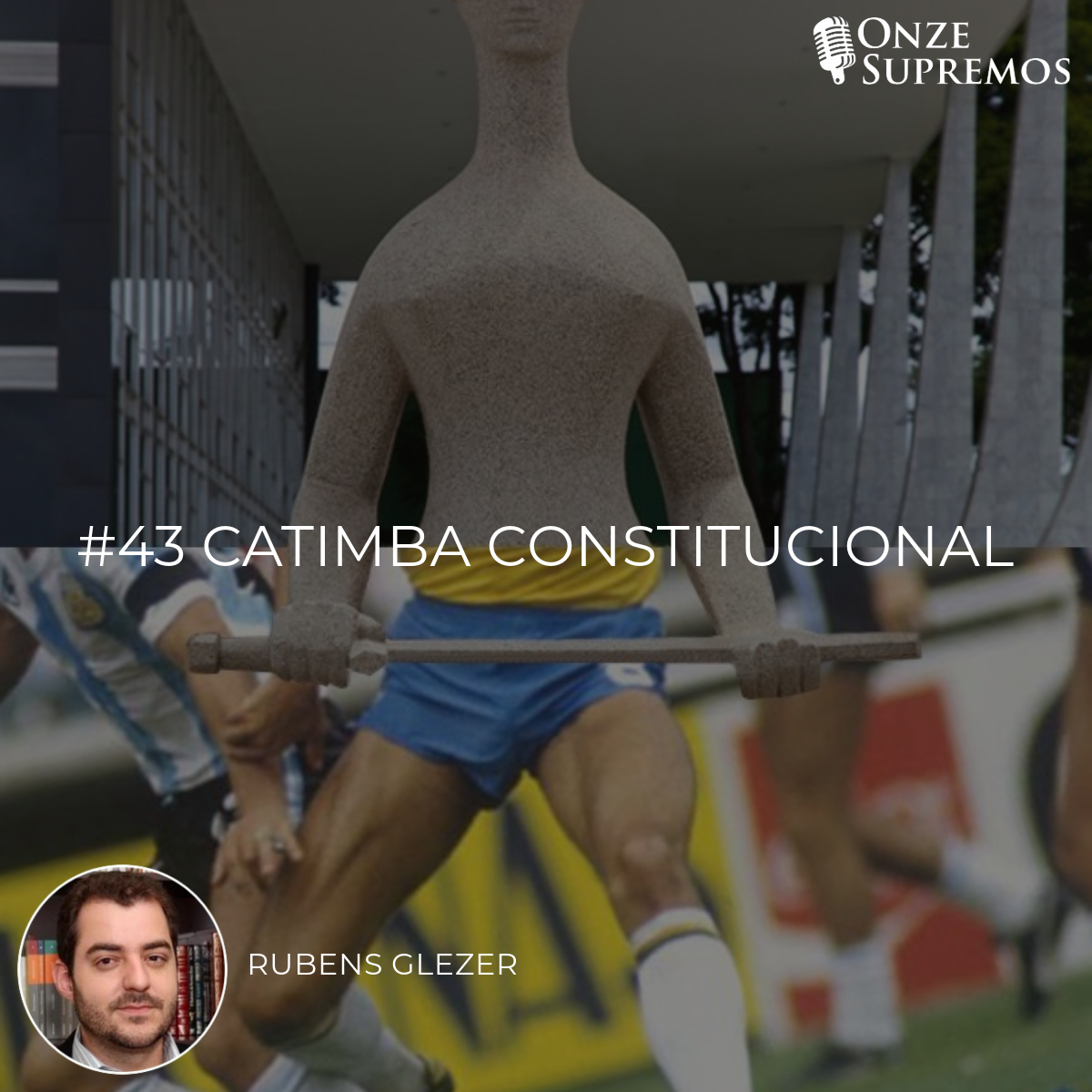 Onze Supremos#043 Catimba Constitucional (com Rubens Glezer)A conversa da vez é com um grande especialista em STF, o professor Rubens Glezer. Com sua ajuda, discutimos a parcela de responsabilidade da Corte pela atual crise constitucional partindo da visão de jogo duro constitucional desenvolvida por Mark Tushnet.
Índice
00:00 Vinheta
00:58 Apresentação do convidado
02:37 Introdução
10:17 Jogo Duro Constitucional
20:29 Erosão Constitucional
26:30 Catimba no Mensalão
30:04 Catimba no Impeachment
32:12 Catimba na Lava Jato
51:50 O que fazer?
57:40 Considerações finais
01:02:53 Referências e indicações
Referências e indicações:
1. Catimba Constituc...2021-04-231h 08
Onze Supremos#043 Catimba Constitucional (com Rubens Glezer)A conversa da vez é com um grande especialista em STF, o professor Rubens Glezer. Com sua ajuda, discutimos a parcela de responsabilidade da Corte pela atual crise constitucional partindo da visão de jogo duro constitucional desenvolvida por Mark Tushnet.
Índice
00:00 Vinheta
00:58 Apresentação do convidado
02:37 Introdução
10:17 Jogo Duro Constitucional
20:29 Erosão Constitucional
26:30 Catimba no Mensalão
30:04 Catimba no Impeachment
32:12 Catimba na Lava Jato
51:50 O que fazer?
57:40 Considerações finais
01:02:53 Referências e indicações
Referências e indicações:
1. Catimba Constituc...2021-04-231h 08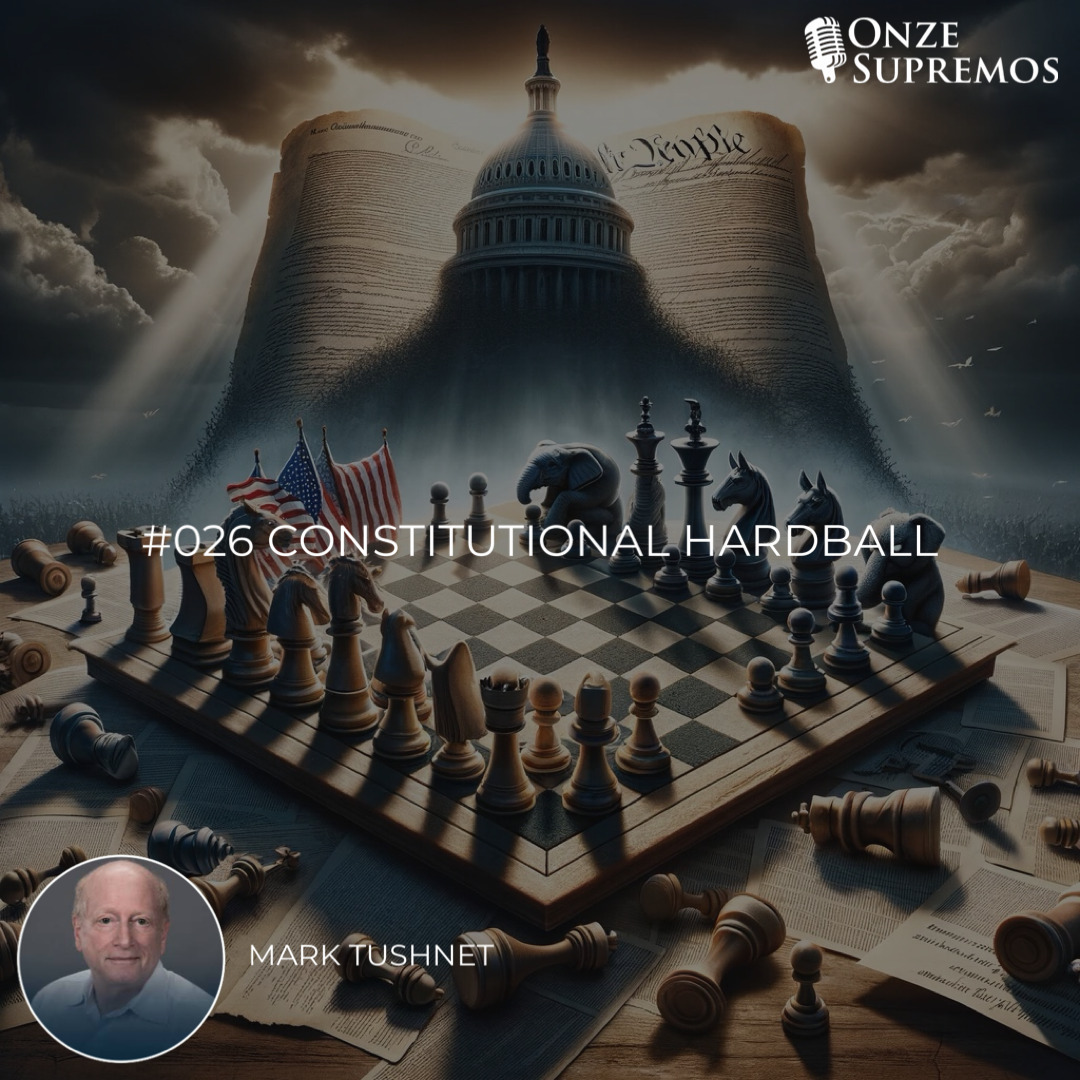 Onze Supremos#026 Constitutional Hardball (com Mark Tushnet)Temos o prazer de anunciar nossa primeira conversa internacional. Mark Tushnet é professor emérito da Faculdade de Direito de Harvard e estuda os acontecimentos do Brasil. A conversa girou em torno da ideia de Jogo Duro Constitucional (Constitutional Hardball), desenvolvida por ele num artigo (2004) em que analisa uma nova forma dos agentes políticos promoverem mudanças constitucionais.
Índice
0:00 Vinheta
0: Apresentação do convidado
Referências e indicações:
1. Constitutional Hardball (Mark Tushnet)
2. Taking Back the Constitution: Activist Judges and the Next Age of American Law (Mark Tushnet)
Para nos...2020-12-1129 min
Onze Supremos#026 Constitutional Hardball (com Mark Tushnet)Temos o prazer de anunciar nossa primeira conversa internacional. Mark Tushnet é professor emérito da Faculdade de Direito de Harvard e estuda os acontecimentos do Brasil. A conversa girou em torno da ideia de Jogo Duro Constitucional (Constitutional Hardball), desenvolvida por ele num artigo (2004) em que analisa uma nova forma dos agentes políticos promoverem mudanças constitucionais.
Índice
0:00 Vinheta
0: Apresentação do convidado
Referências e indicações:
1. Constitutional Hardball (Mark Tushnet)
2. Taking Back the Constitution: Activist Judges and the Next Age of American Law (Mark Tushnet)
Para nos...2020-12-1129 min Life, Liberty, and LawDr. Chad Pecknold and Josh Craddock on the Lincoln Proposal and correcting Roe's first and foundational errorSince 1973, more than 60 million American children have been killed by the violence of abortion. The horror of approximately 2,000 daily killings stems from the United States Supreme Court’s constitutional errors in Roe v. Wade. The Court made two fundamental errors in Roe: first, in its refusal to read the Fourteenth Amendment’s guarantees of equal protection and due process to extend to preborn persons; and second, in its erroneous conclusion that “the right to privacy extends to abortion.”
Fortunately, as scholars ranging from Professor Robert P. George to Professor Mark Tushnet have observed, the judiciary is not the sole...2020-11-231h 04
Life, Liberty, and LawDr. Chad Pecknold and Josh Craddock on the Lincoln Proposal and correcting Roe's first and foundational errorSince 1973, more than 60 million American children have been killed by the violence of abortion. The horror of approximately 2,000 daily killings stems from the United States Supreme Court’s constitutional errors in Roe v. Wade. The Court made two fundamental errors in Roe: first, in its refusal to read the Fourteenth Amendment’s guarantees of equal protection and due process to extend to preborn persons; and second, in its erroneous conclusion that “the right to privacy extends to abortion.”
Fortunately, as scholars ranging from Professor Robert P. George to Professor Mark Tushnet have observed, the judiciary is not the sole...2020-11-231h 04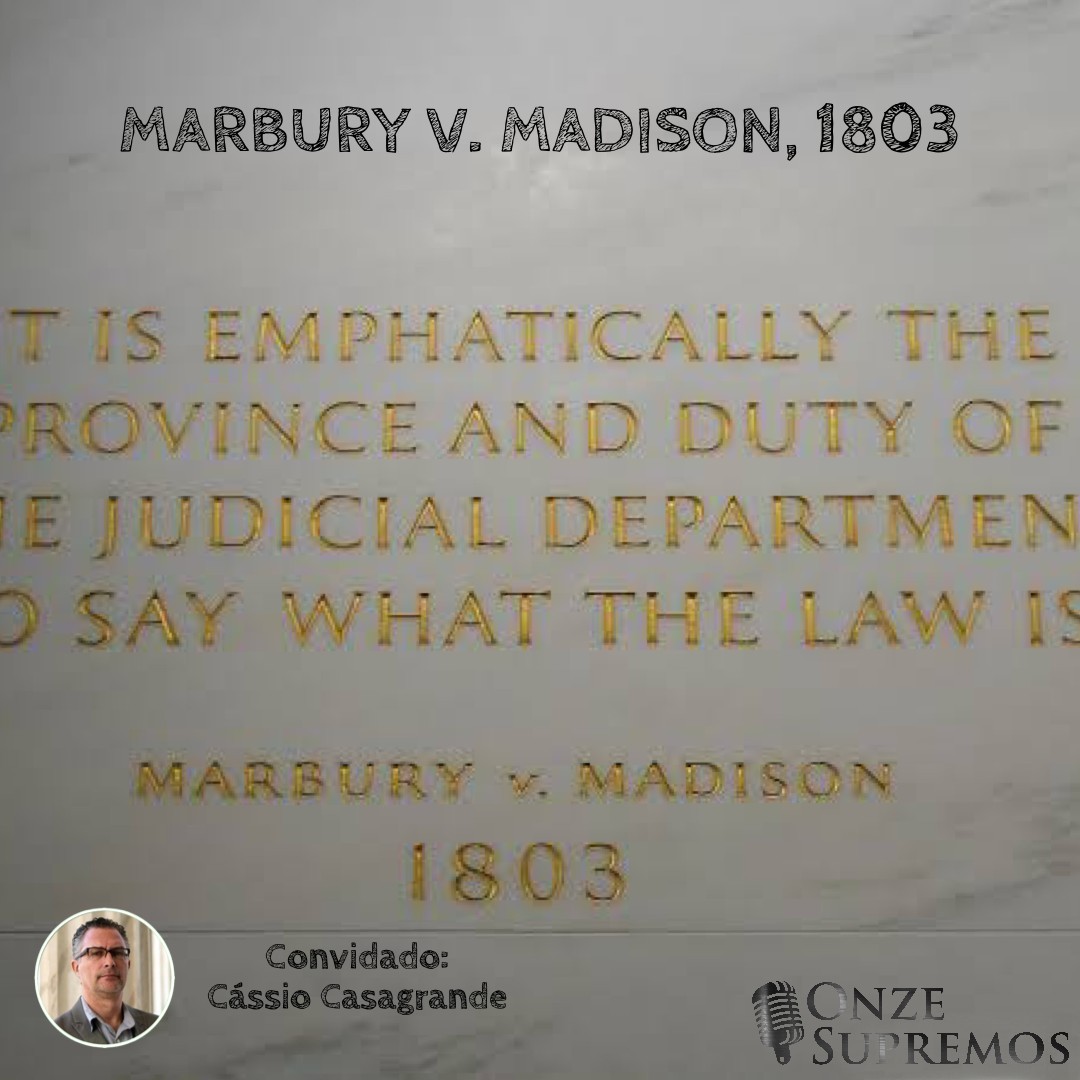 Onze SupremosSCOTUS #02 Marbury v. Madison, 1803 (com Cássio Casagrande)Dia de tratar deste que foi e continua sendo o precedente mais famoso da história do Direito. Discutiremos as questões políticas e jurídicas que envolveram o caso, de forma a contextualizar a decisão.
Referências e indicações:
1. I Dissent (Mark Tushnet)
2. Marbury v. Madison: uma decisão política de manter a corte fora da política (Cássio Casagrande e Dalton Robert Tibúrcio)2020-10-0731 min
Onze SupremosSCOTUS #02 Marbury v. Madison, 1803 (com Cássio Casagrande)Dia de tratar deste que foi e continua sendo o precedente mais famoso da história do Direito. Discutiremos as questões políticas e jurídicas que envolveram o caso, de forma a contextualizar a decisão.
Referências e indicações:
1. I Dissent (Mark Tushnet)
2. Marbury v. Madison: uma decisão política de manter a corte fora da política (Cássio Casagrande e Dalton Robert Tibúrcio)2020-10-0731 min Ridgecrest Baptist Church - SermonsAmerica... Is It Too Late? Part 2According to Harvard Professor Mark Tushnet, “Christians have lost the culture wars, and now the question is how to deal with the losers.” Is it true? Pastor Ray shares part two of "America… Is It Too Late?"Ridgecrest Baptist Church - Sermons Listen on Spotify: https://open.spotify.com/show/3Ir5YcahI8G2SiIjrycB8W?si=rG660IGsRhSrgsRjBE33nwListen on Apple Podcasts: https://podcasts.apple.com/us/podcast/ridgecrest-baptist-church-sermons/id1517442154CHECK OUT OUT OUR WEBSITE:https://www.rbcdothan.org FIND US ON SOCIAL MEDIA: Facebook: https://www.faceb...2020-07-1353 min
Ridgecrest Baptist Church - SermonsAmerica... Is It Too Late? Part 2According to Harvard Professor Mark Tushnet, “Christians have lost the culture wars, and now the question is how to deal with the losers.” Is it true? Pastor Ray shares part two of "America… Is It Too Late?"Ridgecrest Baptist Church - Sermons Listen on Spotify: https://open.spotify.com/show/3Ir5YcahI8G2SiIjrycB8W?si=rG660IGsRhSrgsRjBE33nwListen on Apple Podcasts: https://podcasts.apple.com/us/podcast/ridgecrest-baptist-church-sermons/id1517442154CHECK OUT OUT OUR WEBSITE:https://www.rbcdothan.org FIND US ON SOCIAL MEDIA: Facebook: https://www.faceb...2020-07-1353 min Ridgecrest Baptist Church - SermonsAmerica... Is It Too Late?According to Harvard Professor Mark Tushnet, “Christians have lost the culture wars, and now the question is how to deal with the losers.” Is it true? Pastor Ray shares a timely message from his “Last Days” sermon series titled, America… Is It Too Late?Ridgecrest Baptist Church - Sermons Listen on Spotify: https://open.spotify.com/show/3Ir5YcahI8G2SiIjrycB8W?si=rG660IGsRhSrgsRjBE33nwListen on Apple Podcasts: https://podcasts.apple.com/us/podcast/ridgecrest-baptist-church-sermons/id1517442154CHECK OUT OUT OUR WEBSITE:https://www.rbcdothan.org FIND US ON S...2020-07-061h 05
Ridgecrest Baptist Church - SermonsAmerica... Is It Too Late?According to Harvard Professor Mark Tushnet, “Christians have lost the culture wars, and now the question is how to deal with the losers.” Is it true? Pastor Ray shares a timely message from his “Last Days” sermon series titled, America… Is It Too Late?Ridgecrest Baptist Church - Sermons Listen on Spotify: https://open.spotify.com/show/3Ir5YcahI8G2SiIjrycB8W?si=rG660IGsRhSrgsRjBE33nwListen on Apple Podcasts: https://podcasts.apple.com/us/podcast/ridgecrest-baptist-church-sermons/id1517442154CHECK OUT OUT OUR WEBSITE:https://www.rbcdothan.org FIND US ON S...2020-07-061h 05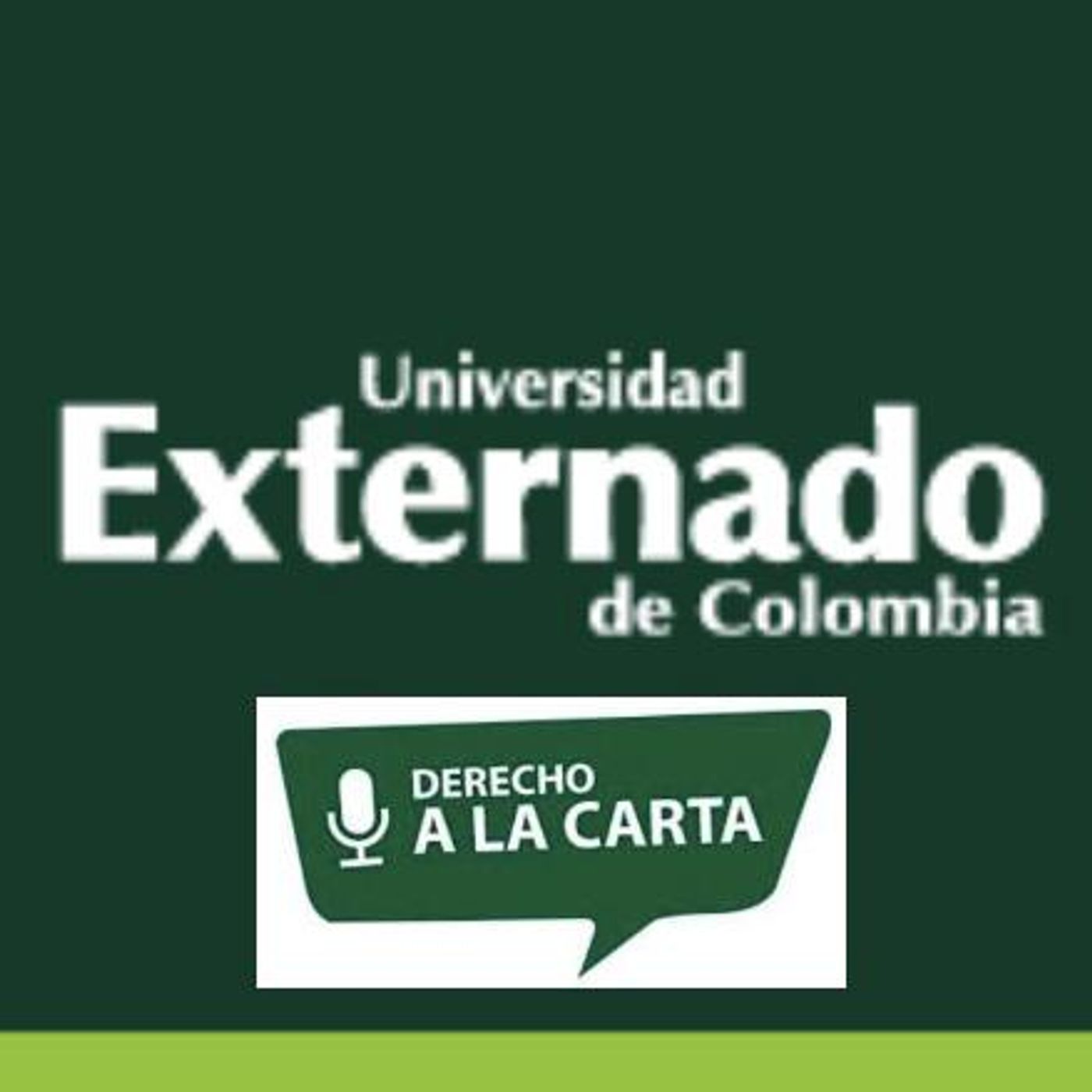 Derecho a la Carta320 - INSTITUCIONES DEFENDIENDO LA DEMOCRACIA CON MARK TUSHNET2019-06-0731 min
Derecho a la Carta320 - INSTITUCIONES DEFENDIENDO LA DEMOCRACIA CON MARK TUSHNET2019-06-0731 min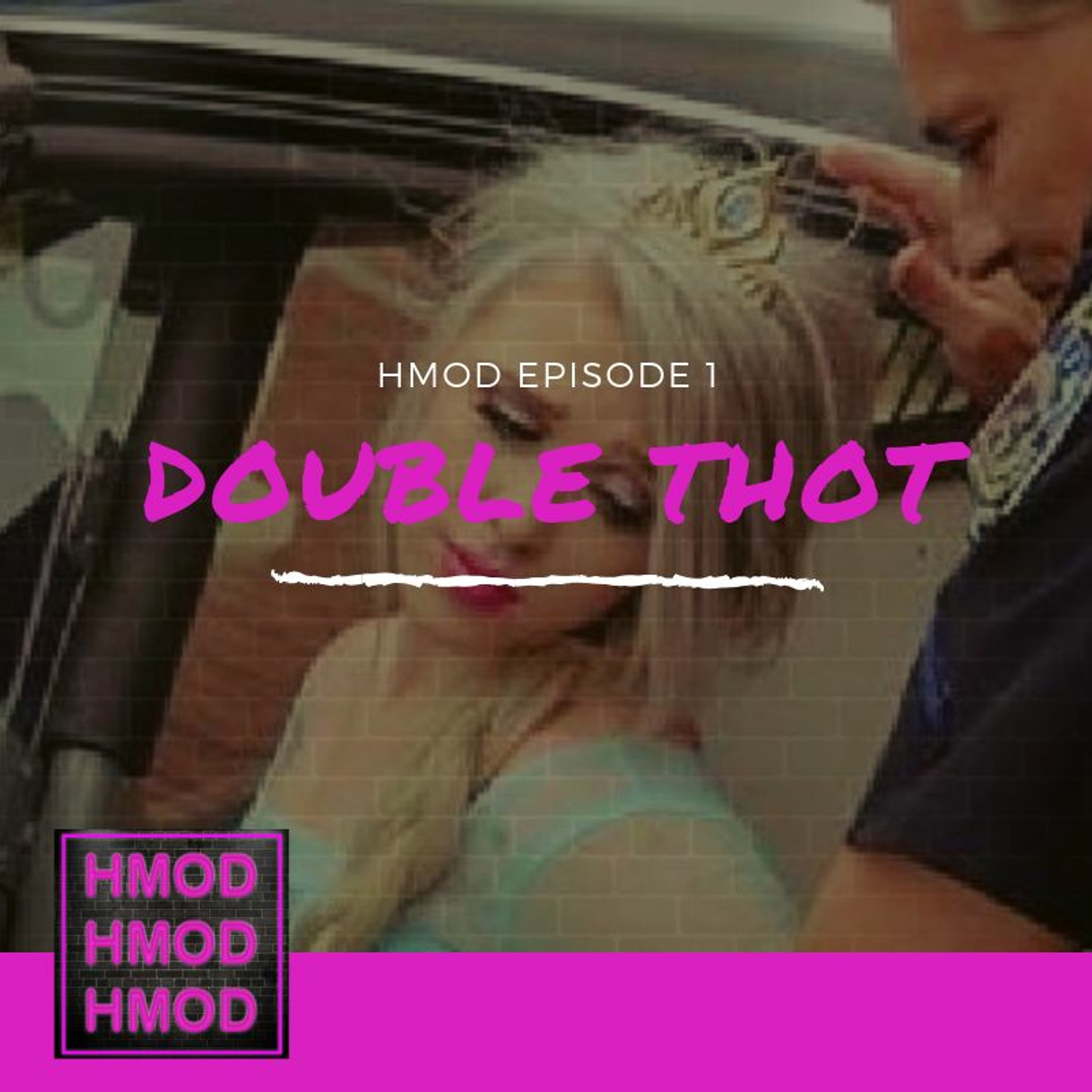 Heidi Matthews On Demand PodcastHMOD Episode 1 - DOUBLE THOTOn this episode Heidi talks to Mark Tushnet, William Nelson Cromwell Professor of Law at Harvard Law School. In the interview, Professor Tushnet talks about the role of critical legal studies in political activism and the need for those seeking progressive goals to develop a double consciousness as part of their practice.
In the second half Heidi talks to producer and New American Husband David Slavick about the recent Elsa (from Frozen) arrest controversy. We ask the question “Can cops ever be funny?” and break down the deep dark underbelly of Elsa fantasies.
**Show Notes**
*Part 1*
Professor Mark Tushnet Faculty Page...2019-02-081h 02
Heidi Matthews On Demand PodcastHMOD Episode 1 - DOUBLE THOTOn this episode Heidi talks to Mark Tushnet, William Nelson Cromwell Professor of Law at Harvard Law School. In the interview, Professor Tushnet talks about the role of critical legal studies in political activism and the need for those seeking progressive goals to develop a double consciousness as part of their practice.
In the second half Heidi talks to producer and New American Husband David Slavick about the recent Elsa (from Frozen) arrest controversy. We ask the question “Can cops ever be funny?” and break down the deep dark underbelly of Elsa fantasies.
**Show Notes**
*Part 1*
Professor Mark Tushnet Faculty Page...2019-02-081h 02 We the PeopleCan the President Declare a National Emergency to Build the Wall?President Trump and congressional Democrats remain at an impasse over a White House proposal to fund the construction of a southern border wall. The president has said that if Congress decides not to appropriate the funds, then he will “probably” declare a national emergency to circumvent Congress and build the wall. On this episode of We the People, we ask: what would happen if the president decided to declare a national emergency and divert military funds to build the wall? What statutes could he rely on? And would such an action be constitutional? Host Jeffrey Rosen and constitutional law expe...2019-01-1058 min
We the PeopleCan the President Declare a National Emergency to Build the Wall?President Trump and congressional Democrats remain at an impasse over a White House proposal to fund the construction of a southern border wall. The president has said that if Congress decides not to appropriate the funds, then he will “probably” declare a national emergency to circumvent Congress and build the wall. On this episode of We the People, we ask: what would happen if the president decided to declare a national emergency and divert military funds to build the wall? What statutes could he rely on? And would such an action be constitutional? Host Jeffrey Rosen and constitutional law expe...2019-01-1058 min We the PeopleCan the President Declare a National Emergency to Build the Wall?President Trump and congressional Democrats remain at an impasse over a White House proposal to fund the construction of a southern border wall. The president has said that if Congress decides not to appropriate the funds, then he will “probably” declare a national emergency to circumvent Congress and build the wall. On this episode of We the People, we ask: what would happen if the president decided to declare a national emergency and divert military funds to build the wall? What statutes could he rely on? And would such an action be constitutional? Host Jeffrey Rosen and constitutional law expe...2019-01-1058 min
We the PeopleCan the President Declare a National Emergency to Build the Wall?President Trump and congressional Democrats remain at an impasse over a White House proposal to fund the construction of a southern border wall. The president has said that if Congress decides not to appropriate the funds, then he will “probably” declare a national emergency to circumvent Congress and build the wall. On this episode of We the People, we ask: what would happen if the president decided to declare a national emergency and divert military funds to build the wall? What statutes could he rely on? And would such an action be constitutional? Host Jeffrey Rosen and constitutional law expe...2019-01-1058 min Let Your Imagination Run Wild With Our Captivating Free AudiobookI Dissent: Great Opposing Opinions in Landmark Supreme Court Cases Audiobook by Mark TushnetListen to this audiobook in full for free onhttps://hotaudiobook.com/freeID: 350119
Title: I Dissent: Great Opposing Opinions in Landmark Supreme Court Cases
Author: Mark Tushnet
Narrator: Mark Tushnet
Format: Unabridged
Length: 6:39:00
Language: English
Release date: 12-18-18
Publisher: Beacon Press
Genres: Non-Fiction, Law
Summary:
For the first time, a collection of dissents from the most famous Supreme Court cases
If American history can truly be traced through the majority decisions in landmark Supreme Court cases, then what about the dissenting opinions? In issues of race, gender, privacy, workers' rights, and more, would advances have been impeded or failures rectified...2018-12-186h 39
Let Your Imagination Run Wild With Our Captivating Free AudiobookI Dissent: Great Opposing Opinions in Landmark Supreme Court Cases Audiobook by Mark TushnetListen to this audiobook in full for free onhttps://hotaudiobook.com/freeID: 350119
Title: I Dissent: Great Opposing Opinions in Landmark Supreme Court Cases
Author: Mark Tushnet
Narrator: Mark Tushnet
Format: Unabridged
Length: 6:39:00
Language: English
Release date: 12-18-18
Publisher: Beacon Press
Genres: Non-Fiction, Law
Summary:
For the first time, a collection of dissents from the most famous Supreme Court cases
If American history can truly be traced through the majority decisions in landmark Supreme Court cases, then what about the dissenting opinions? In issues of race, gender, privacy, workers' rights, and more, would advances have been impeded or failures rectified...2018-12-186h 39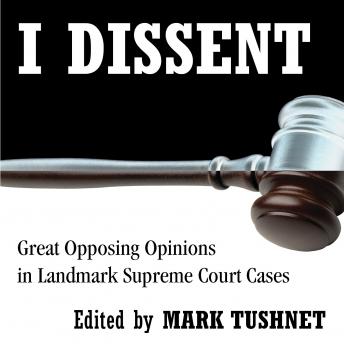 Get New Full Audiobooks in Non-Fiction, Current Affairs, Law, & PoliticsI Dissent: Great Opposing Opinions in Landmark Supreme Court Cases by Mark TushnetPlease visithttps://thebookvoice.com/podcasts/1/audiobook/350119to listen full audiobooks.
Title: I Dissent: Great Opposing Opinions in Landmark Supreme Court Cases
Author: Mark Tushnet
Narrator: Mark Tushnet
Format: Unabridged Audiobook
Length: 6 hours 39 minutes
Release date: December 18, 2018
Genres: Current Affairs, Law, & Politics
Publisher's Summary:
For the first time, a collection of dissents from the most famous Supreme Court cases If American history can truly be traced through the majority decisions in landmark Supreme Court cases, then what about the dissenting opinions? In issues of race, gender, privacy, workers' rights, and more, would advances have been impeded or failures rectified if the...2018-12-186h 39
Get New Full Audiobooks in Non-Fiction, Current Affairs, Law, & PoliticsI Dissent: Great Opposing Opinions in Landmark Supreme Court Cases by Mark TushnetPlease visithttps://thebookvoice.com/podcasts/1/audiobook/350119to listen full audiobooks.
Title: I Dissent: Great Opposing Opinions in Landmark Supreme Court Cases
Author: Mark Tushnet
Narrator: Mark Tushnet
Format: Unabridged Audiobook
Length: 6 hours 39 minutes
Release date: December 18, 2018
Genres: Current Affairs, Law, & Politics
Publisher's Summary:
For the first time, a collection of dissents from the most famous Supreme Court cases If American history can truly be traced through the majority decisions in landmark Supreme Court cases, then what about the dissenting opinions? In issues of race, gender, privacy, workers' rights, and more, would advances have been impeded or failures rectified if the...2018-12-186h 39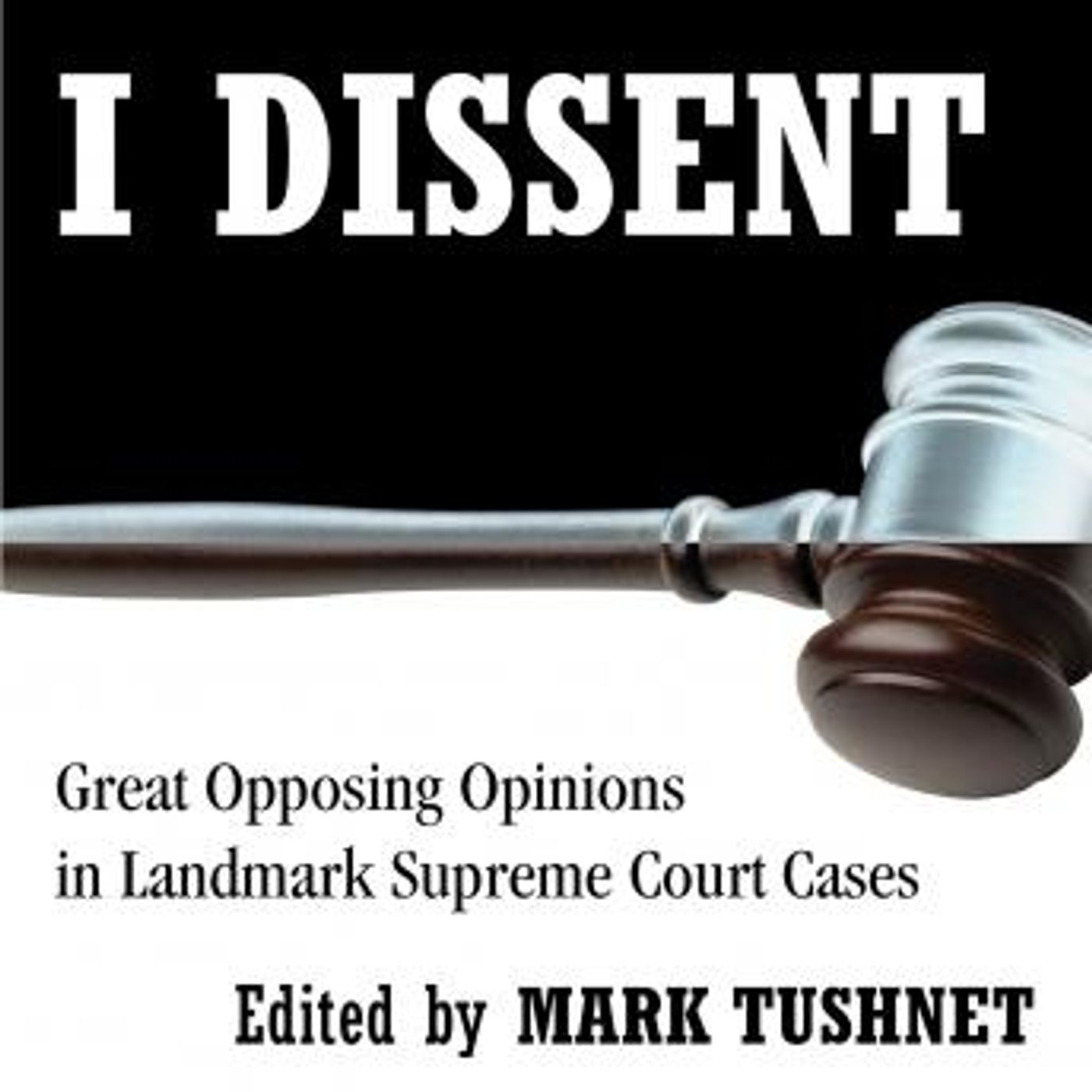 New Free Audiobooks in Non-Fiction, Current Affairs, Law, & PoliticsI Dissent: Great Opposing Opinions in Landmark Supreme Court Cases by Mark TushnetPlease visit https://thebookvoice.com/podcasts/1/audiobook/350119 to listen full audiobooks. Title: I Dissent: Great Opposing Opinions in Landmark Supreme Court Cases Author: Mark Tushnet Narrator: Mark Tushnet Format: Unabridged Audiobook Length: 6 hours 39 minutes Release date: December 18, 2018 Genres: Current Affairs, Law, & Politics Publisher's Summary: For the first time, a collection of dissents from the most famous Supreme Court cases If American history can truly be traced through the majority decisions in landmark Supreme Court cases, then what about the dissenting opinions? In issues of race, gender, privacy, workers' rights, and more, would advances have been impeded or failures rectified if...2018-12-1810 min
New Free Audiobooks in Non-Fiction, Current Affairs, Law, & PoliticsI Dissent: Great Opposing Opinions in Landmark Supreme Court Cases by Mark TushnetPlease visit https://thebookvoice.com/podcasts/1/audiobook/350119 to listen full audiobooks. Title: I Dissent: Great Opposing Opinions in Landmark Supreme Court Cases Author: Mark Tushnet Narrator: Mark Tushnet Format: Unabridged Audiobook Length: 6 hours 39 minutes Release date: December 18, 2018 Genres: Current Affairs, Law, & Politics Publisher's Summary: For the first time, a collection of dissents from the most famous Supreme Court cases If American history can truly be traced through the majority decisions in landmark Supreme Court cases, then what about the dissenting opinions? In issues of race, gender, privacy, workers' rights, and more, would advances have been impeded or failures rectified if...2018-12-1810 min This is DemocracyThis is Democracy – Episode 10: The Supreme Court and DemocracyThis week’s topic covers the Supreme Court and Democracy. How has the the Supreme Court contributed to and detracted from American democracy? What are the prospects for the coming years?
Zachary begins with a scene-setting poem, “Closing the Tab.”
Sanford Levinson, who holds the W. St. John Garwood and W. St. John Garwood, Jr. Centennial Chair in Law, joined the University of Texas Law School in 1980. Previously a member of the Department of Politics at Princeton University, he is also a Professor in the Department of Government at the University of Texas. Levinson is the au...2018-10-1800 min
This is DemocracyThis is Democracy – Episode 10: The Supreme Court and DemocracyThis week’s topic covers the Supreme Court and Democracy. How has the the Supreme Court contributed to and detracted from American democracy? What are the prospects for the coming years?
Zachary begins with a scene-setting poem, “Closing the Tab.”
Sanford Levinson, who holds the W. St. John Garwood and W. St. John Garwood, Jr. Centennial Chair in Law, joined the University of Texas Law School in 1980. Previously a member of the Department of Politics at Princeton University, he is also a Professor in the Department of Government at the University of Texas. Levinson is the au...2018-10-1800 min The Matt Townsend ShowHealth Insurance, Investigating Politicians, Peak PerformanceHow did health insurance get so complicated (18:48)
J.B. Silvers, PhD, is the John R. Mannix Medical Mutual of Ohio Professor of Health Care Finance and professor of banking and finance at Weatherhead School of Management with a joint appointment in the Case Western Reserve University School of Medicine. Health insurance and how you feel it should be administered has quickly been added to the list of “no, nos” that you should not talk about at work. Why does something so simple seem so complicated? J.B. Silvers explains why health insurance is so complicated.
The US is terrible at investi...2017-08-192h 22
The Matt Townsend ShowHealth Insurance, Investigating Politicians, Peak PerformanceHow did health insurance get so complicated (18:48)
J.B. Silvers, PhD, is the John R. Mannix Medical Mutual of Ohio Professor of Health Care Finance and professor of banking and finance at Weatherhead School of Management with a joint appointment in the Case Western Reserve University School of Medicine. Health insurance and how you feel it should be administered has quickly been added to the list of “no, nos” that you should not talk about at work. Why does something so simple seem so complicated? J.B. Silvers explains why health insurance is so complicated.
The US is terrible at investi...2017-08-192h 22 The Matt Townsend ShowInvestigating Politicians, Peak Performance, Interfaith MarriageThe US is terrible at investigating politicians (17:50)
Mark Tushnet is a professor at Harvard Law. His research includes studies examining (skeptically) the practice of judicial review in the United States and around the world.The investigation into the Trump Campaign and the Russian allegations have followed President Donald Trump his whole Presidency. He fired the FBI Director… criticized the Special prosecutor and calls the media fake news. Why does it seem so hard for the U.S government to investigate our top politicians? Here is a hint: It’s in the Constitution. Mark Tushnet explains how we investigate politicians and how it can...2017-08-162h 20
The Matt Townsend ShowInvestigating Politicians, Peak Performance, Interfaith MarriageThe US is terrible at investigating politicians (17:50)
Mark Tushnet is a professor at Harvard Law. His research includes studies examining (skeptically) the practice of judicial review in the United States and around the world.The investigation into the Trump Campaign and the Russian allegations have followed President Donald Trump his whole Presidency. He fired the FBI Director… criticized the Special prosecutor and calls the media fake news. Why does it seem so hard for the U.S government to investigate our top politicians? Here is a hint: It’s in the Constitution. Mark Tushnet explains how we investigate politicians and how it can...2017-08-162h 20 Salvo Melhor JuízoSMJ #46 - Suprema Corte dos EUASMJ #46 – Suprema Corte dos EUA
A Constituição dos Estados Unidos da América determina de forma muito lacônica, desde sua aprovação em 1787, que deverá ser criada uma Suprema Corte. Muito pouco se disse sobre qual seria o papel, a função, os critérios de seleção e o funcionamento desse Tribunal. Todas estas dúvidas iniciais acabaram sendo respondidas com o tempo, com o desenvolvimento do pensamento jurídico e da própria história dos EUA. Após uma longa tradição, a Suprema Corte Estadunidense é a mais antiga e uma das mais influentes no mundo.
Responsável pe...2017-04-241h 51
Salvo Melhor JuízoSMJ #46 - Suprema Corte dos EUASMJ #46 – Suprema Corte dos EUA
A Constituição dos Estados Unidos da América determina de forma muito lacônica, desde sua aprovação em 1787, que deverá ser criada uma Suprema Corte. Muito pouco se disse sobre qual seria o papel, a função, os critérios de seleção e o funcionamento desse Tribunal. Todas estas dúvidas iniciais acabaram sendo respondidas com o tempo, com o desenvolvimento do pensamento jurídico e da própria história dos EUA. Após uma longa tradição, a Suprema Corte Estadunidense é a mais antiga e uma das mais influentes no mundo.
Responsável pe...2017-04-241h 51 Salvo Melhor JuízoSMJ #46 - Suprema Corte dos EUASMJ #46 – Suprema Corte dos EUA
A Constituição dos Estados Unidos da América determina de forma muito lacônica, desde sua aprovação em 1787, que deverá ser criada uma Suprema Corte. Muito pouco se disse sobre qual seria o papel, a função, os critérios de seleção e o funcionamento desse Tribunal. Todas estas dúvidas iniciais acabaram sendo respondidas com o tempo, com o desenvolvimento do pensamento jurídico e da própria história dos EUA. Após uma longa tradição, a Suprema Corte Estadunidense é a mais antiga e uma das mais influentes no mundo.
Responsável pe...2017-04-241h 51
Salvo Melhor JuízoSMJ #46 - Suprema Corte dos EUASMJ #46 – Suprema Corte dos EUA
A Constituição dos Estados Unidos da América determina de forma muito lacônica, desde sua aprovação em 1787, que deverá ser criada uma Suprema Corte. Muito pouco se disse sobre qual seria o papel, a função, os critérios de seleção e o funcionamento desse Tribunal. Todas estas dúvidas iniciais acabaram sendo respondidas com o tempo, com o desenvolvimento do pensamento jurídico e da própria história dos EUA. Após uma longa tradição, a Suprema Corte Estadunidense é a mais antiga e uma das mais influentes no mundo.
Responsável pe...2017-04-241h 51 Salvo Melhor JuízoSMJ #46 - Suprema Corte dos EUASMJ #46 – Suprema Corte dos EUA
A Constituição dos Estados Unidos da América determina de forma muito lacônica, desde sua aprovação em 1787, que deverá ser criada uma Suprema Corte. Muito pouco se disse sobre qual seria o papel, a função, os critérios de seleção e o funcionamento desse Tribunal. Todas estas dúvidas iniciais acabaram sendo respondidas com o tempo, com o desenvolvimento do pensamento jurídico e da própria história dos EUA. Após uma longa tradição, a Suprema Corte Estadunidense é a mais antiga e uma das mais influentes no mundo.
Responsável pel...2017-04-241h 51
Salvo Melhor JuízoSMJ #46 - Suprema Corte dos EUASMJ #46 – Suprema Corte dos EUA
A Constituição dos Estados Unidos da América determina de forma muito lacônica, desde sua aprovação em 1787, que deverá ser criada uma Suprema Corte. Muito pouco se disse sobre qual seria o papel, a função, os critérios de seleção e o funcionamento desse Tribunal. Todas estas dúvidas iniciais acabaram sendo respondidas com o tempo, com o desenvolvimento do pensamento jurídico e da própria história dos EUA. Após uma longa tradição, a Suprema Corte Estadunidense é a mais antiga e uma das mais influentes no mundo.
Responsável pel...2017-04-241h 51 Derecho a la Carta235 - ENTREVISTA MARK TUSHNET2017-03-1723 min
Derecho a la Carta235 - ENTREVISTA MARK TUSHNET2017-03-1723 min Oral ArgumentEpisode 99: PowerJoe is at the airport for a special pre-roll segment. Then we say hello to Lisa Heinzerling, administrative law expert (5:23). After a substantive and goofy discussion of legislation and regulation courses (6:29), we discuss the development of what Lisa calls “the power canons” resulting from recent decisions of the Supreme Court (10:39). If you’re Congress, how do you write a statute meant to solve problems that might evolve in type or degree? Do you have the power to do so, or are you limited to speaking to the here and now? Does the Supreme Court have the power to limit legisl...2016-05-271h 12
Oral ArgumentEpisode 99: PowerJoe is at the airport for a special pre-roll segment. Then we say hello to Lisa Heinzerling, administrative law expert (5:23). After a substantive and goofy discussion of legislation and regulation courses (6:29), we discuss the development of what Lisa calls “the power canons” resulting from recent decisions of the Supreme Court (10:39). If you’re Congress, how do you write a statute meant to solve problems that might evolve in type or degree? Do you have the power to do so, or are you limited to speaking to the here and now? Does the Supreme Court have the power to limit legisl...2016-05-271h 12 Download Most Popular Audiobooks in Nonfiction, Social SciencesMaterial Law Audiobook by John BrighamListen to this audiobook free with a 30-day trial. Go tohttp://hotaudiobook.com/freeTitle: Material Law
Subtitle: A Jurisprudence of What's Real
Author: John Brigham
Narrator: Alan Taylor
Format: Unabridged
Length: 8 hrs and 53 mins
Language: English
Release date: 12-09-15
Publisher: University Press Audiobooks
Genres: Nonfiction, Social Sciences
Publisher's Summary:
In Material Law, distinguished scholar John Brigham focuses on the places where law and material life intersect, and how law creates and alters our social reality. Brigham looks at an eclectic group of bodies and things - from maps and territories and trends in courthouse architecture to a woman's womb...2015-12-098h 53
Download Most Popular Audiobooks in Nonfiction, Social SciencesMaterial Law Audiobook by John BrighamListen to this audiobook free with a 30-day trial. Go tohttp://hotaudiobook.com/freeTitle: Material Law
Subtitle: A Jurisprudence of What's Real
Author: John Brigham
Narrator: Alan Taylor
Format: Unabridged
Length: 8 hrs and 53 mins
Language: English
Release date: 12-09-15
Publisher: University Press Audiobooks
Genres: Nonfiction, Social Sciences
Publisher's Summary:
In Material Law, distinguished scholar John Brigham focuses on the places where law and material life intersect, and how law creates and alters our social reality. Brigham looks at an eclectic group of bodies and things - from maps and territories and trends in courthouse architecture to a woman's womb...2015-12-098h 53 ProcrastinandoEpisode 349. Constitucionalismo progresivo, una entrevista al Dr. Mark TushnetAgradecemos a la Facultad de Derecho de la UNAM y en especial a la Dra. María Leoba Castañeda Rivas por su apoyo en la realización de este programa. Desde la Universidad de Harvard nos entrevistamos con el Dr. Mark Tushnet quien nos comparte sobre el constitucionalismo popular y el progresista, además abordamos diversos aspectos de los estudios críticos dentro del Derecho.2014-08-0525 min
ProcrastinandoEpisode 349. Constitucionalismo progresivo, una entrevista al Dr. Mark TushnetAgradecemos a la Facultad de Derecho de la UNAM y en especial a la Dra. María Leoba Castañeda Rivas por su apoyo en la realización de este programa. Desde la Universidad de Harvard nos entrevistamos con el Dr. Mark Tushnet quien nos comparte sobre el constitucionalismo popular y el progresista, además abordamos diversos aspectos de los estudios críticos dentro del Derecho.2014-08-0525 min Oral ArgumentEpisode 23: Rex SunsteinWe dive into the legal nature of the regulatory state with Ethan Leib of Fordham Law School. In what sense is the making of regulatory policy, whether on the environment or on net neutrality, a legal process? Should regulatory agencies adhere to precedent or otherwise be bound by law-like doctrines? We learn about the White House’s influence over rulemaking through OIRA and question how OIRA should function and what legal principles should govern it.
This show’s links:
Ethan Leib’s faculty profile and articles
This Week in Law 263: More Bodies on Blackacre, on which Joe an...2014-06-201h 21
Oral ArgumentEpisode 23: Rex SunsteinWe dive into the legal nature of the regulatory state with Ethan Leib of Fordham Law School. In what sense is the making of regulatory policy, whether on the environment or on net neutrality, a legal process? Should regulatory agencies adhere to precedent or otherwise be bound by law-like doctrines? We learn about the White House’s influence over rulemaking through OIRA and question how OIRA should function and what legal principles should govern it.
This show’s links:
Ethan Leib’s faculty profile and articles
This Week in Law 263: More Bodies on Blackacre, on which Joe an...2014-06-201h 21 Listen to Best Sellers Audiobooks in Nonfiction, PoliticsIn the Balance Audiobook by Mark TushnetPlease visithttps://thebookvoice.com/podcasts/audiobook/1037/to download full audiobooks of your choice for free.
Title: In the Balance
Subtitle: Law and Politics in the Roberts Court
Author: Mark Tushnet
Narrator: Brian Zelis
Format: Unabridged
Length: 10 hrs and 35 mins
Language: English
Release date: 10-25-13
Publisher: Audible Studios
Ratings: 4 of 5 out of 15 votes
Genres: Nonfiction, Politics
Publisher's Summary:
An examination of the initial years of the Roberts Court and the intellectual battle between Roberts and Kagan for leadership.
When John Roberts was appointed chief justice of the Supreme Court, he said he would act as an umpire. Instead, his Court...2013-10-2510h 35
Listen to Best Sellers Audiobooks in Nonfiction, PoliticsIn the Balance Audiobook by Mark TushnetPlease visithttps://thebookvoice.com/podcasts/audiobook/1037/to download full audiobooks of your choice for free.
Title: In the Balance
Subtitle: Law and Politics in the Roberts Court
Author: Mark Tushnet
Narrator: Brian Zelis
Format: Unabridged
Length: 10 hrs and 35 mins
Language: English
Release date: 10-25-13
Publisher: Audible Studios
Ratings: 4 of 5 out of 15 votes
Genres: Nonfiction, Politics
Publisher's Summary:
An examination of the initial years of the Roberts Court and the intellectual battle between Roberts and Kagan for leadership.
When John Roberts was appointed chief justice of the Supreme Court, he said he would act as an umpire. Instead, his Court...2013-10-2510h 35 Lawyer 2 LawyerPost DOMA and Prop 8 Rulings: The Next Move for Gay RightsWith the Supreme Court’s Prop 8 and DOMA rulings, same-sex marriage is now legal in California and same-sex married couples can receive federal benefits across the nation. These landmark decisions for gay rights have sparked the question: is nationwide marriage equality on the way? On this edition of Lawyer2Lawyer, hosts Bob Ambrogi and J. Craig Williams will talk with Constitutional Law Professors Mark Tushnet and William Eskridge about what the history of both the gay rights and the civil rights movements have to say for the future of gay rights in America.
• Harvard Law Professor Mark Tushnet spec...2013-07-1235 min
Lawyer 2 LawyerPost DOMA and Prop 8 Rulings: The Next Move for Gay RightsWith the Supreme Court’s Prop 8 and DOMA rulings, same-sex marriage is now legal in California and same-sex married couples can receive federal benefits across the nation. These landmark decisions for gay rights have sparked the question: is nationwide marriage equality on the way? On this edition of Lawyer2Lawyer, hosts Bob Ambrogi and J. Craig Williams will talk with Constitutional Law Professors Mark Tushnet and William Eskridge about what the history of both the gay rights and the civil rights movements have to say for the future of gay rights in America.
• Harvard Law Professor Mark Tushnet spec...2013-07-1235 min Public Affairs and GovernmentIs the American Constitution Obsolete? (Day 2 - Part 4)Americans revere their constitution but are disturbed by growing signs of political dysfunction. We have placed in the White House candidates who have not won a majority of the popular vote. In this time of war, fears of an imperial presidency persist. Gridlock prevents reform in health care, immigration, and other vital areas. An economic crisis generates fears that the system may not be able to respond effectively. Can we solve the problems we face under the current Constitution or does the 21st Century call for a new Magna Carta?
Day 1: The Constitution, Pro and Con / Daniel...2012-08-311h 47
Public Affairs and GovernmentIs the American Constitution Obsolete? (Day 2 - Part 4)Americans revere their constitution but are disturbed by growing signs of political dysfunction. We have placed in the White House candidates who have not won a majority of the popular vote. In this time of war, fears of an imperial presidency persist. Gridlock prevents reform in health care, immigration, and other vital areas. An economic crisis generates fears that the system may not be able to respond effectively. Can we solve the problems we face under the current Constitution or does the 21st Century call for a new Magna Carta?
Day 1: The Constitution, Pro and Con / Daniel...2012-08-311h 47 Public Affairs and GovernmentIs the American Constitution Obsolete? (Day 2 - Part 5)Americans revere their constitution but are disturbed by growing signs of political dysfunction. We have placed in the White House candidates who have not won a majority of the popular vote. In this time of war, fears of an imperial presidency persist. Gridlock prevents reform in health care, immigration, and other vital areas. An economic crisis generates fears that the system may not be able to respond effectively. Can we solve the problems we face under the current Constitution or does the 21st Century call for a new Magna Carta?
Day 1: The Constitution, Pro and Con / Daniel...2012-08-311h 20
Public Affairs and GovernmentIs the American Constitution Obsolete? (Day 2 - Part 5)Americans revere their constitution but are disturbed by growing signs of political dysfunction. We have placed in the White House candidates who have not won a majority of the popular vote. In this time of war, fears of an imperial presidency persist. Gridlock prevents reform in health care, immigration, and other vital areas. An economic crisis generates fears that the system may not be able to respond effectively. Can we solve the problems we face under the current Constitution or does the 21st Century call for a new Magna Carta?
Day 1: The Constitution, Pro and Con / Daniel...2012-08-311h 20 Public Affairs and GovernmentIs the American Constitution Obsolete? (Day 2 - Part 4)Americans revere their constitution but are disturbed by growing signs of political dysfunction. We have placed in the White House candidates who have not won a majority of the popular vote. In this time of war, fears of an imperial presidency persist. Gridlock prevents reform in health care, immigration, and other vital areas. An economic crisis generates fears that the system may not be able to respond effectively. Can we solve the problems we face under the current Constitution or does the 21st Century call for a new Magna Carta?
Day 1: The Constitution, Pro and Con / Daniel...2012-08-311h 47
Public Affairs and GovernmentIs the American Constitution Obsolete? (Day 2 - Part 4)Americans revere their constitution but are disturbed by growing signs of political dysfunction. We have placed in the White House candidates who have not won a majority of the popular vote. In this time of war, fears of an imperial presidency persist. Gridlock prevents reform in health care, immigration, and other vital areas. An economic crisis generates fears that the system may not be able to respond effectively. Can we solve the problems we face under the current Constitution or does the 21st Century call for a new Magna Carta?
Day 1: The Constitution, Pro and Con / Daniel...2012-08-311h 47